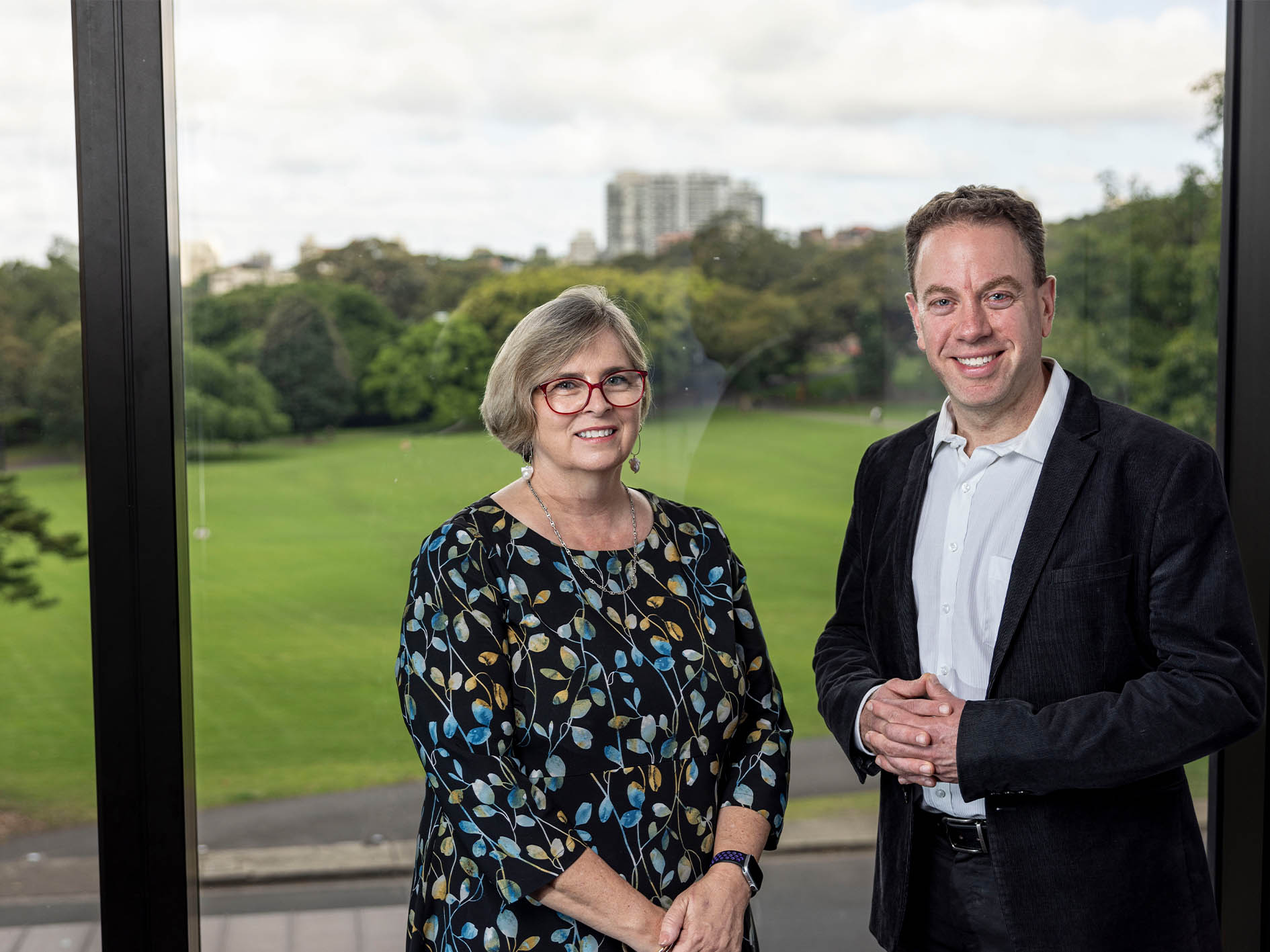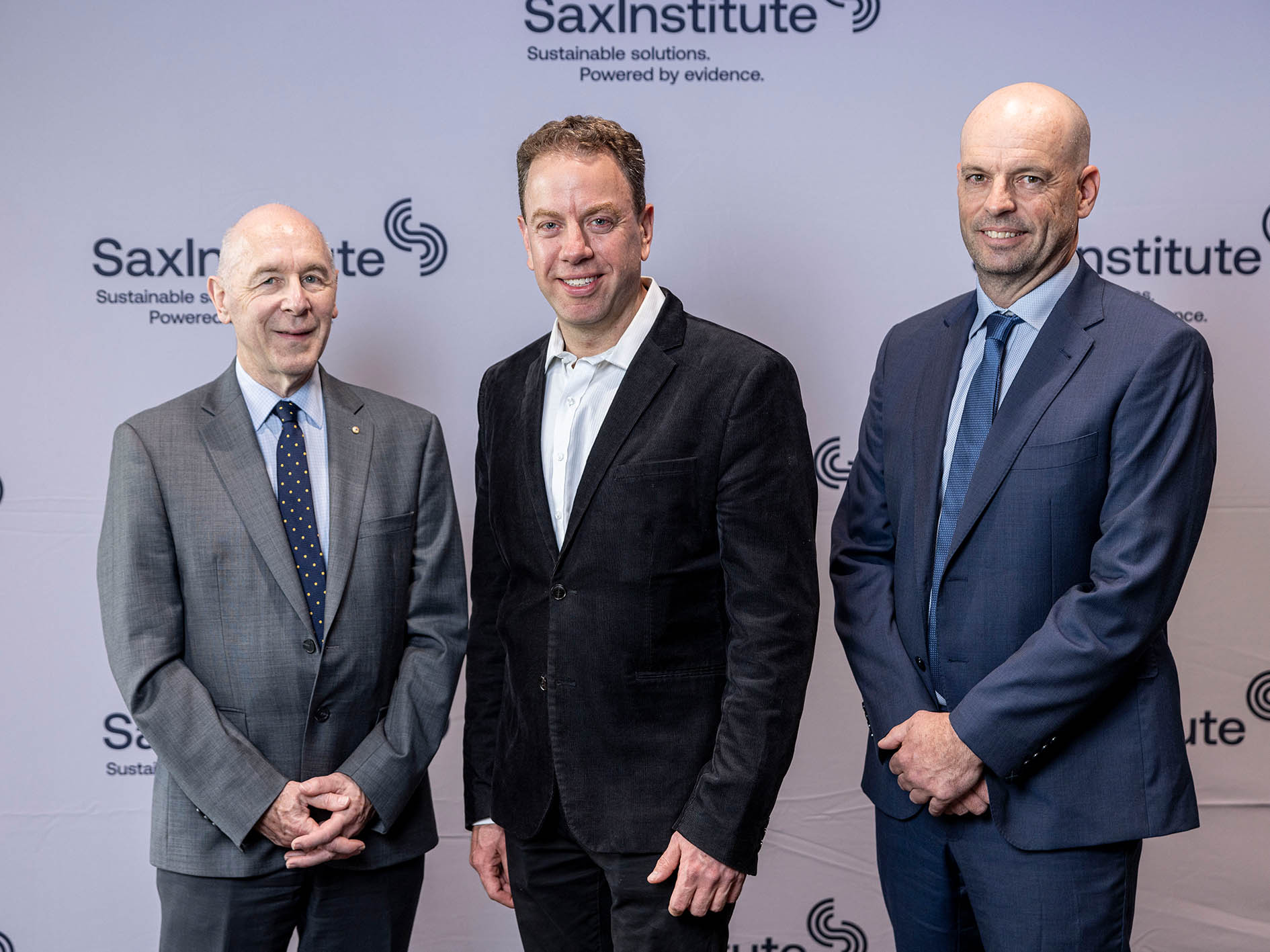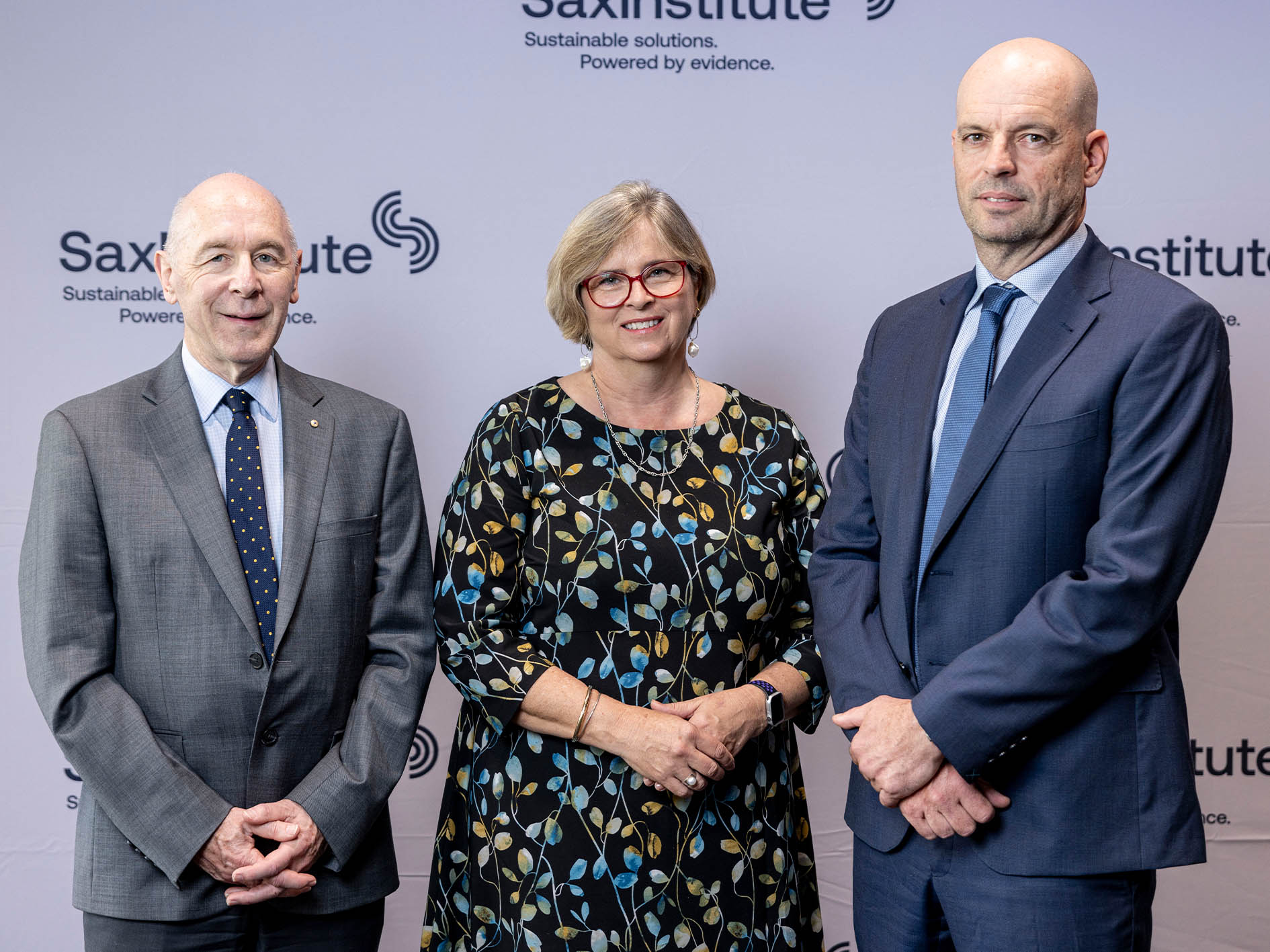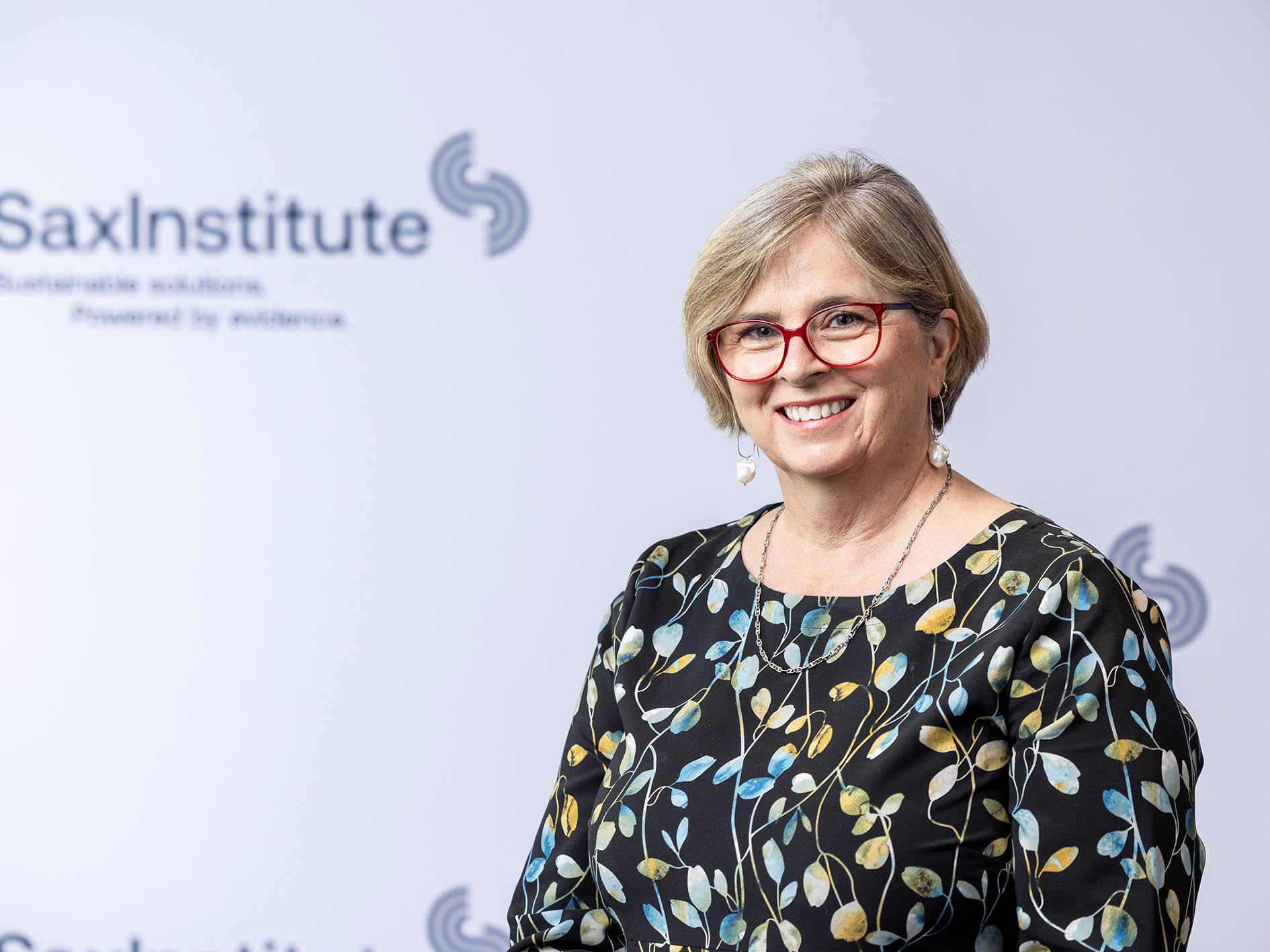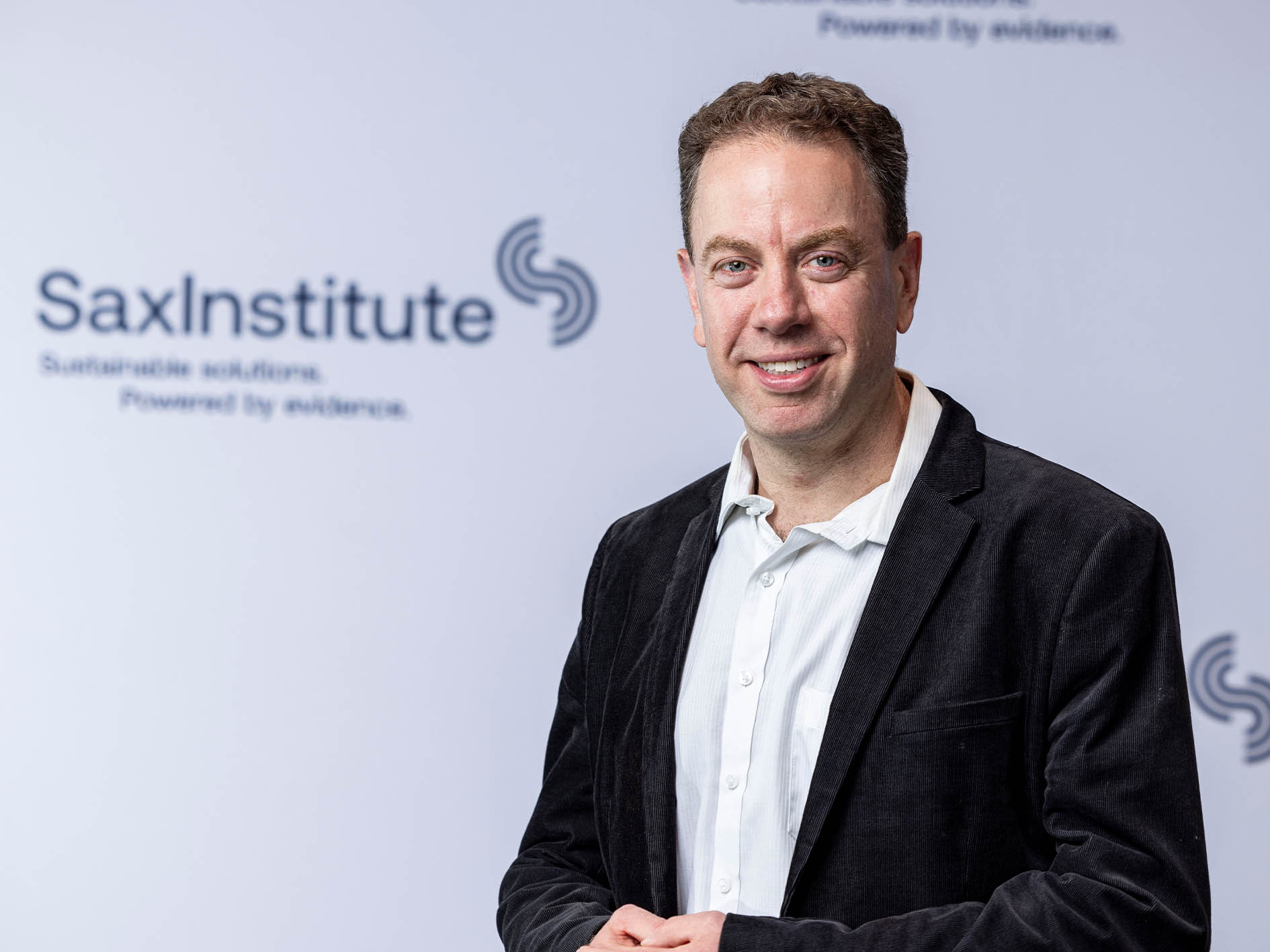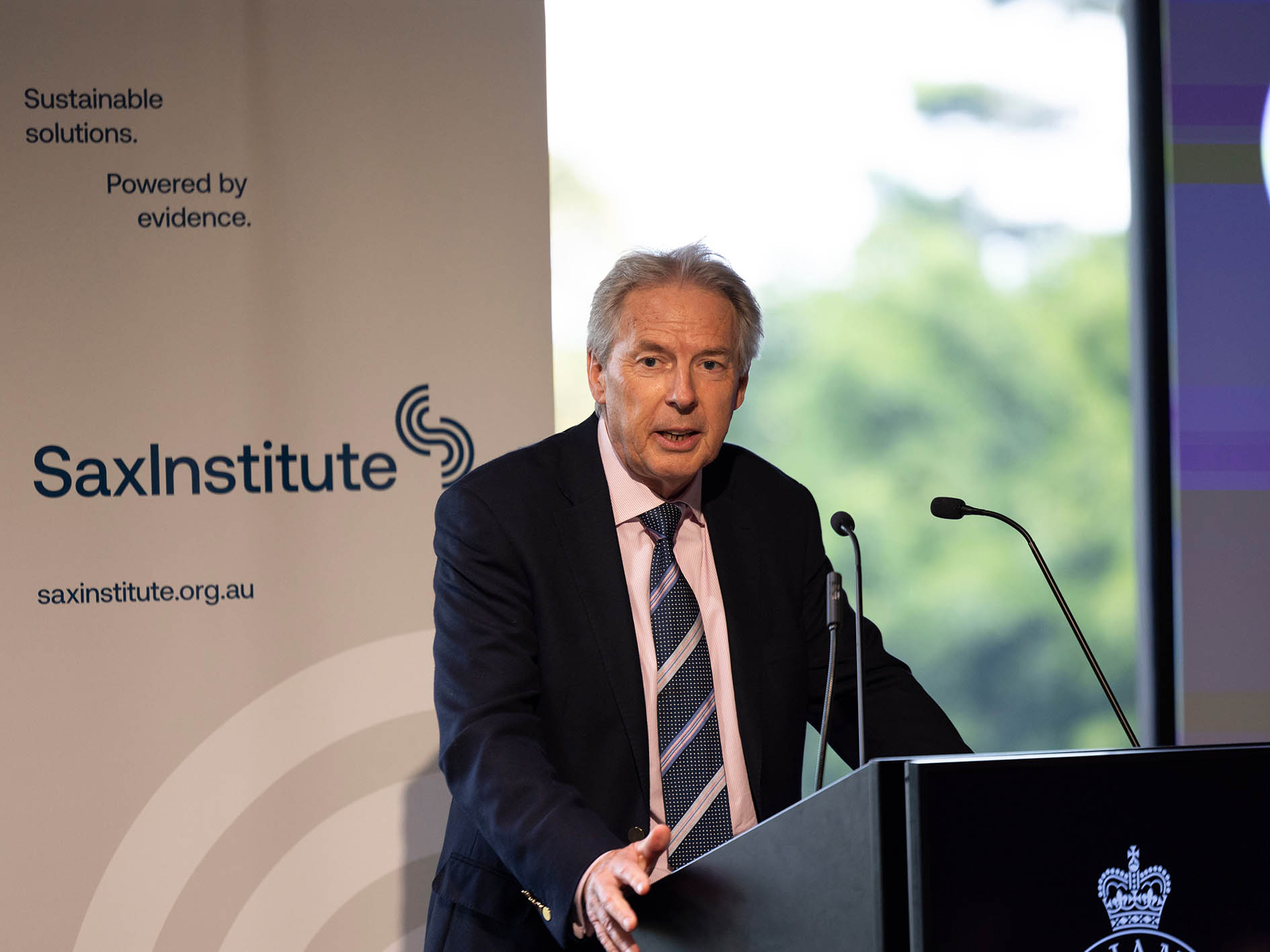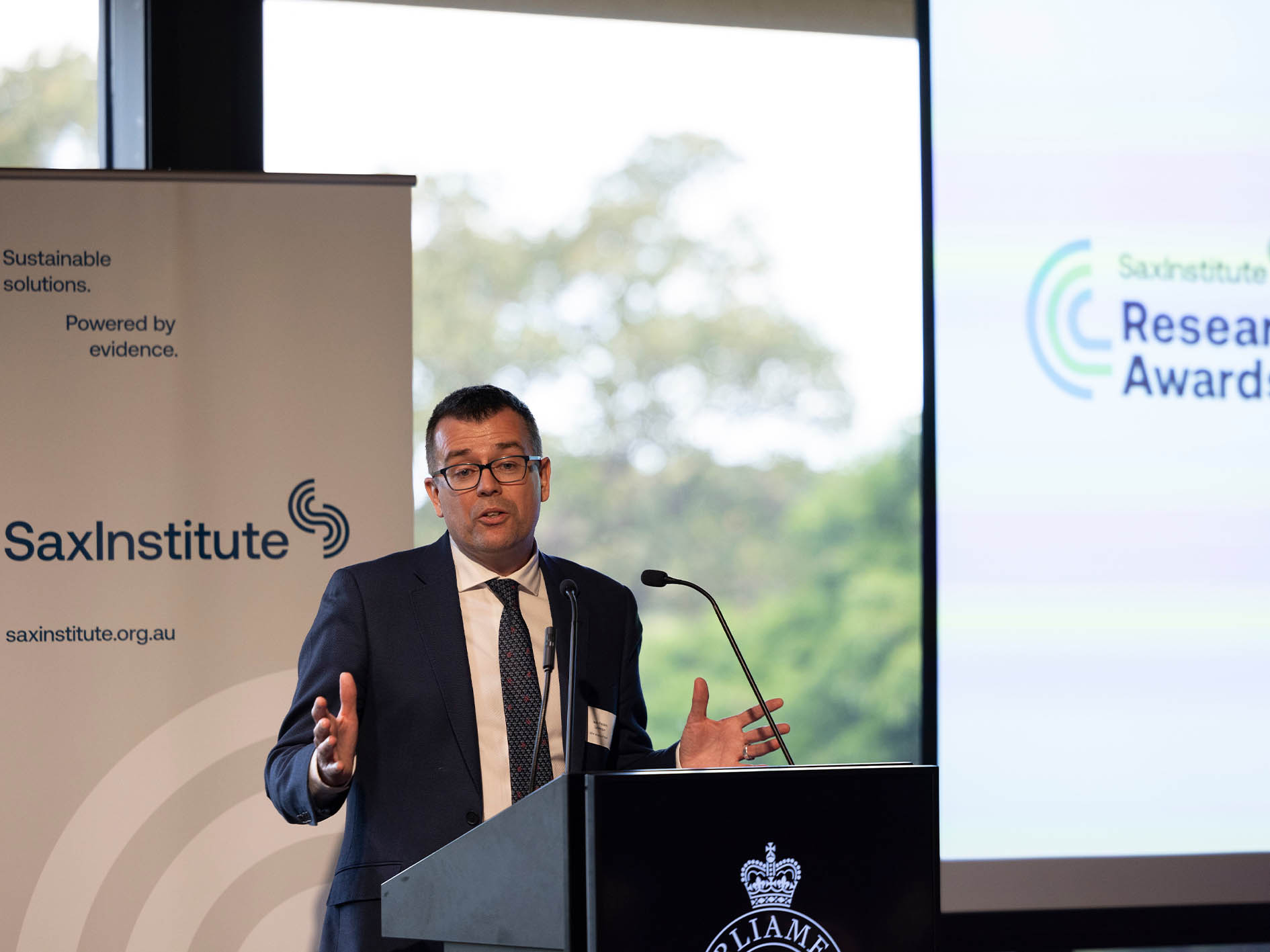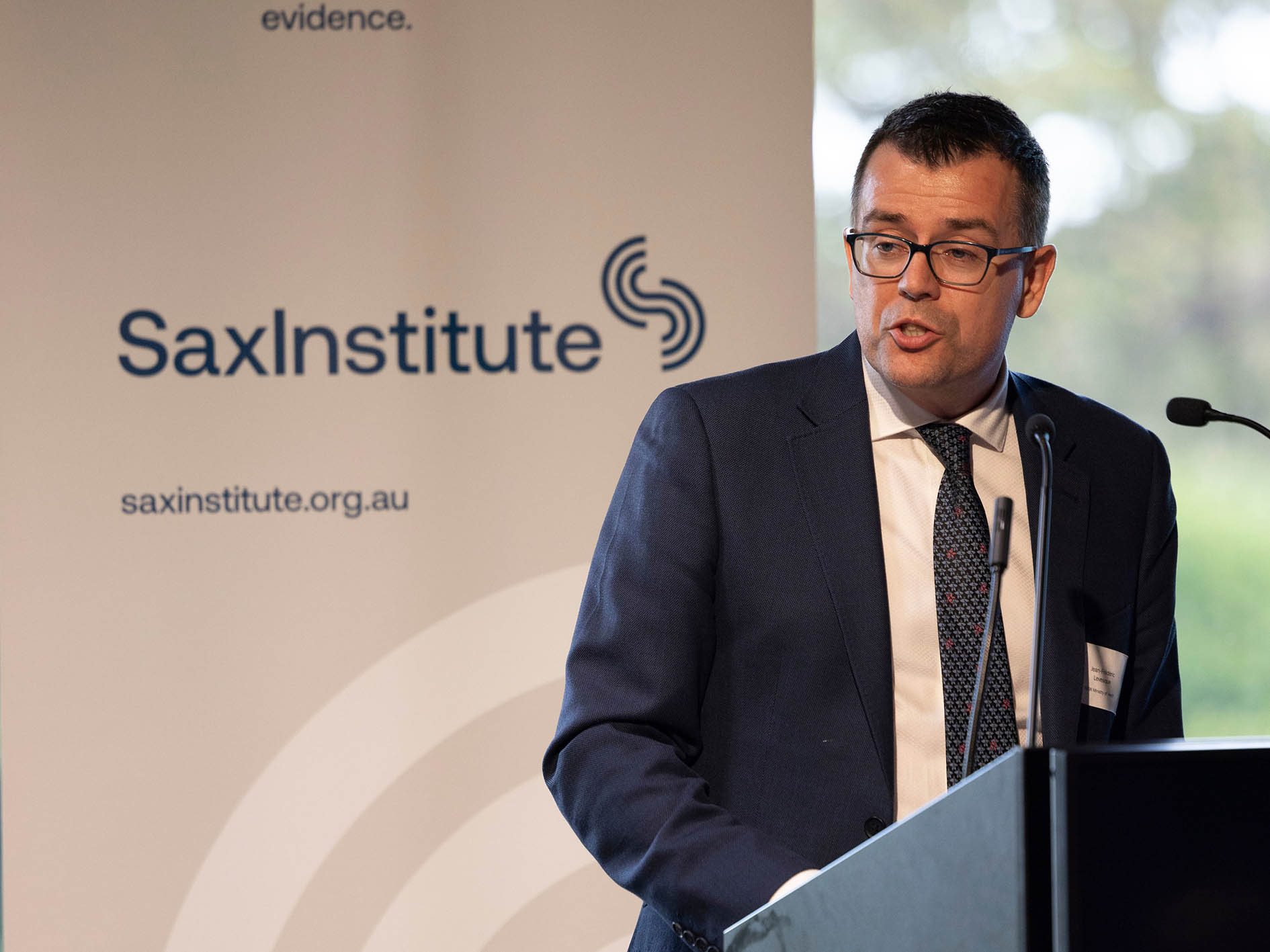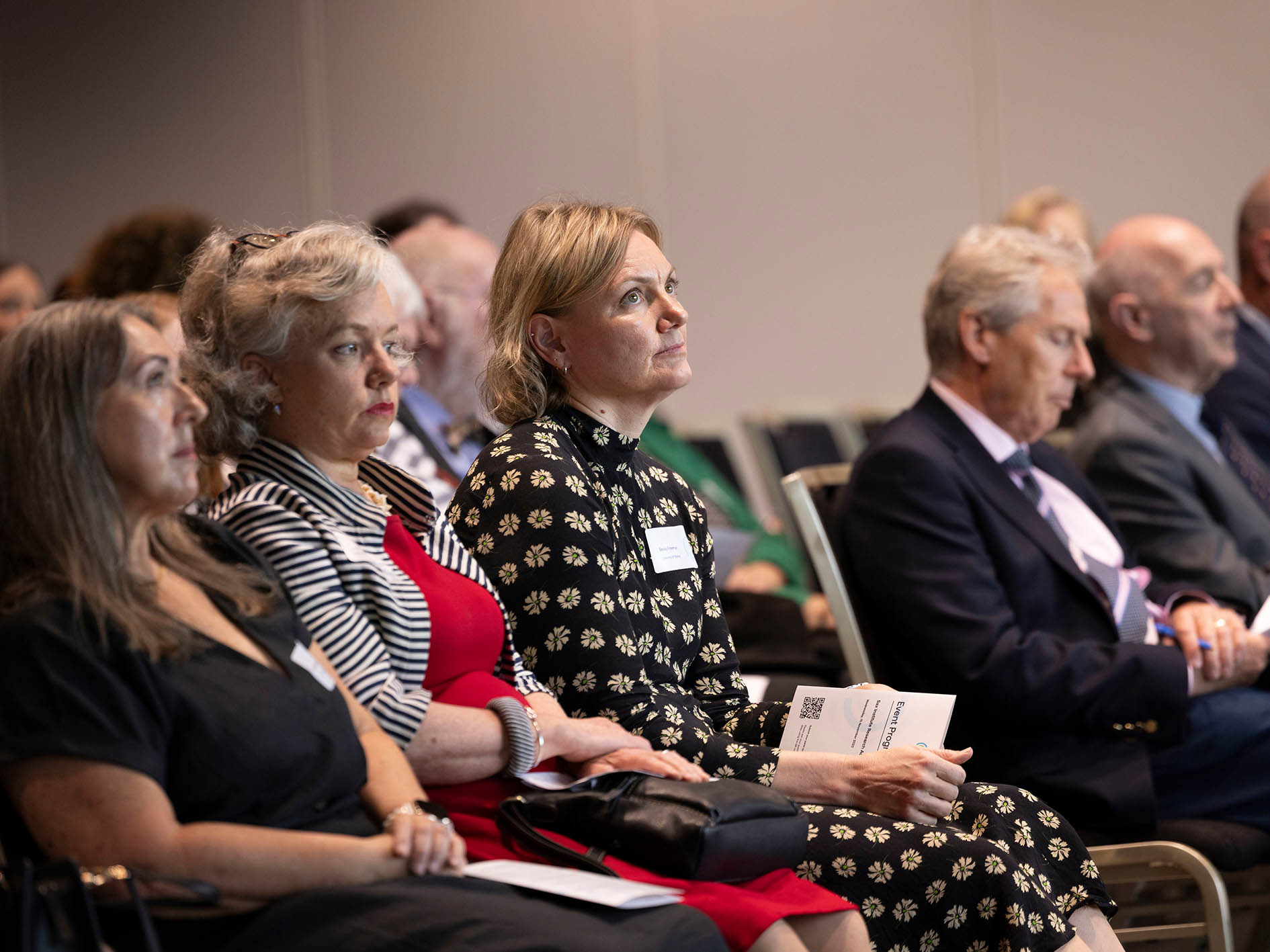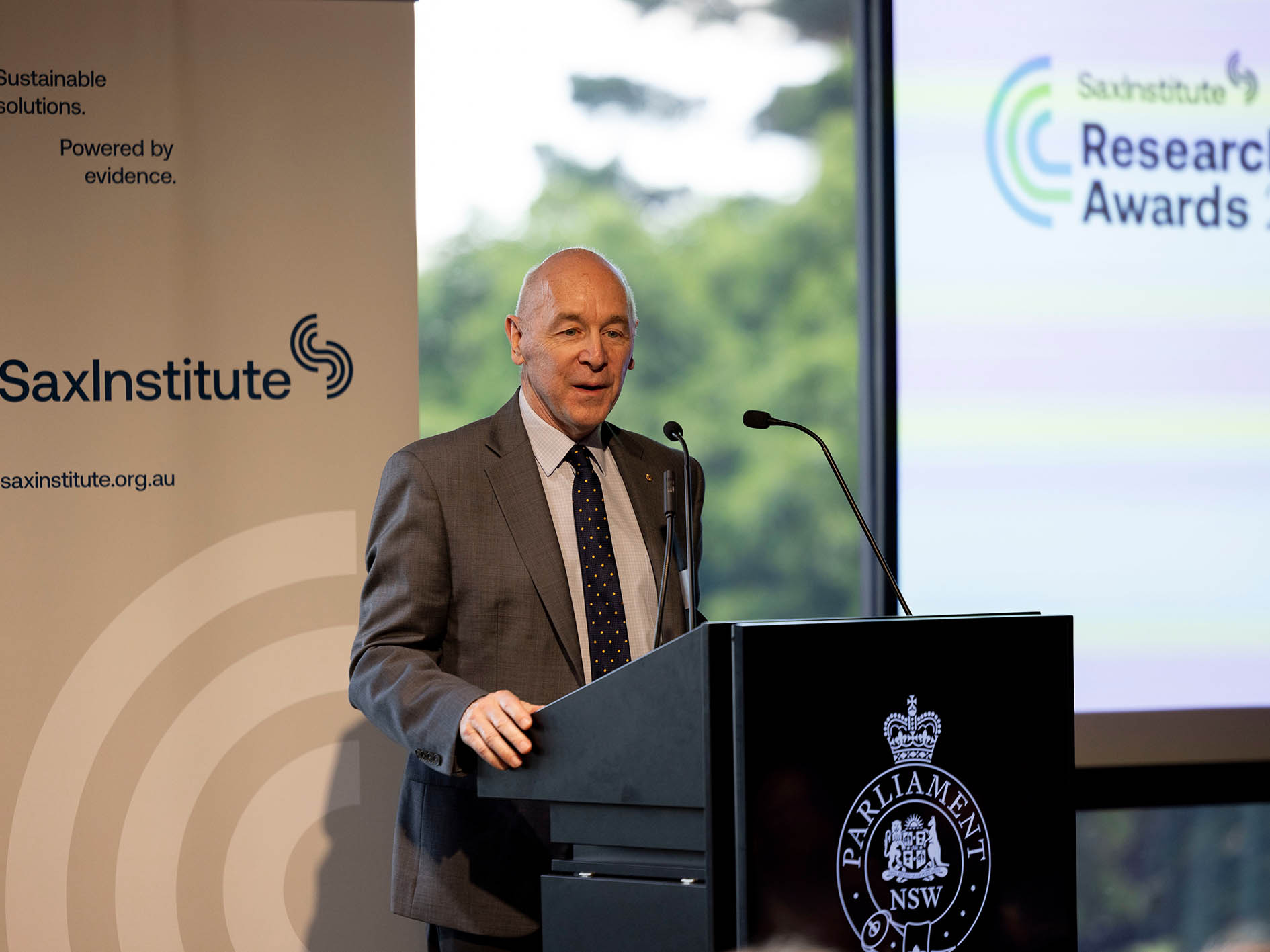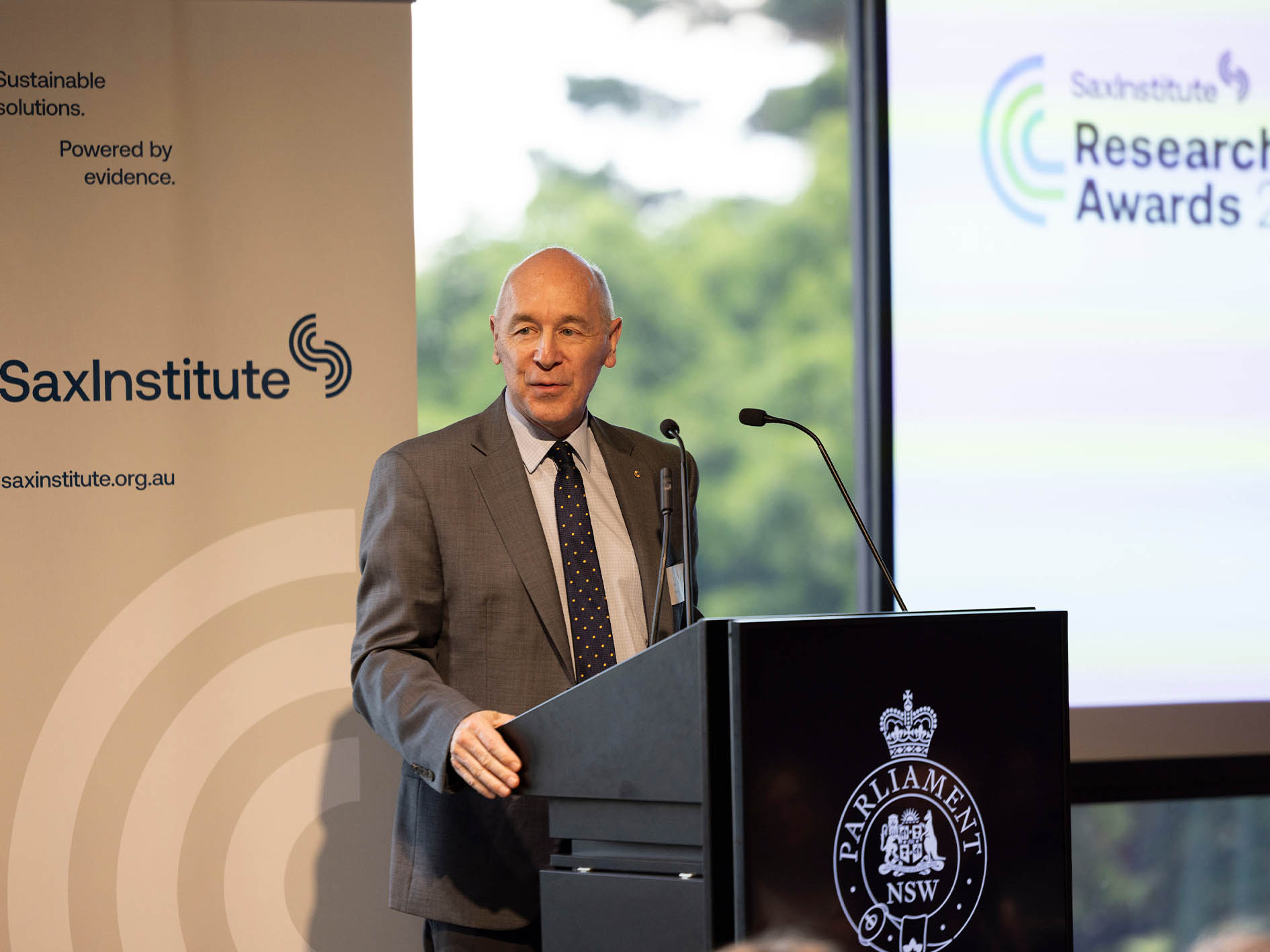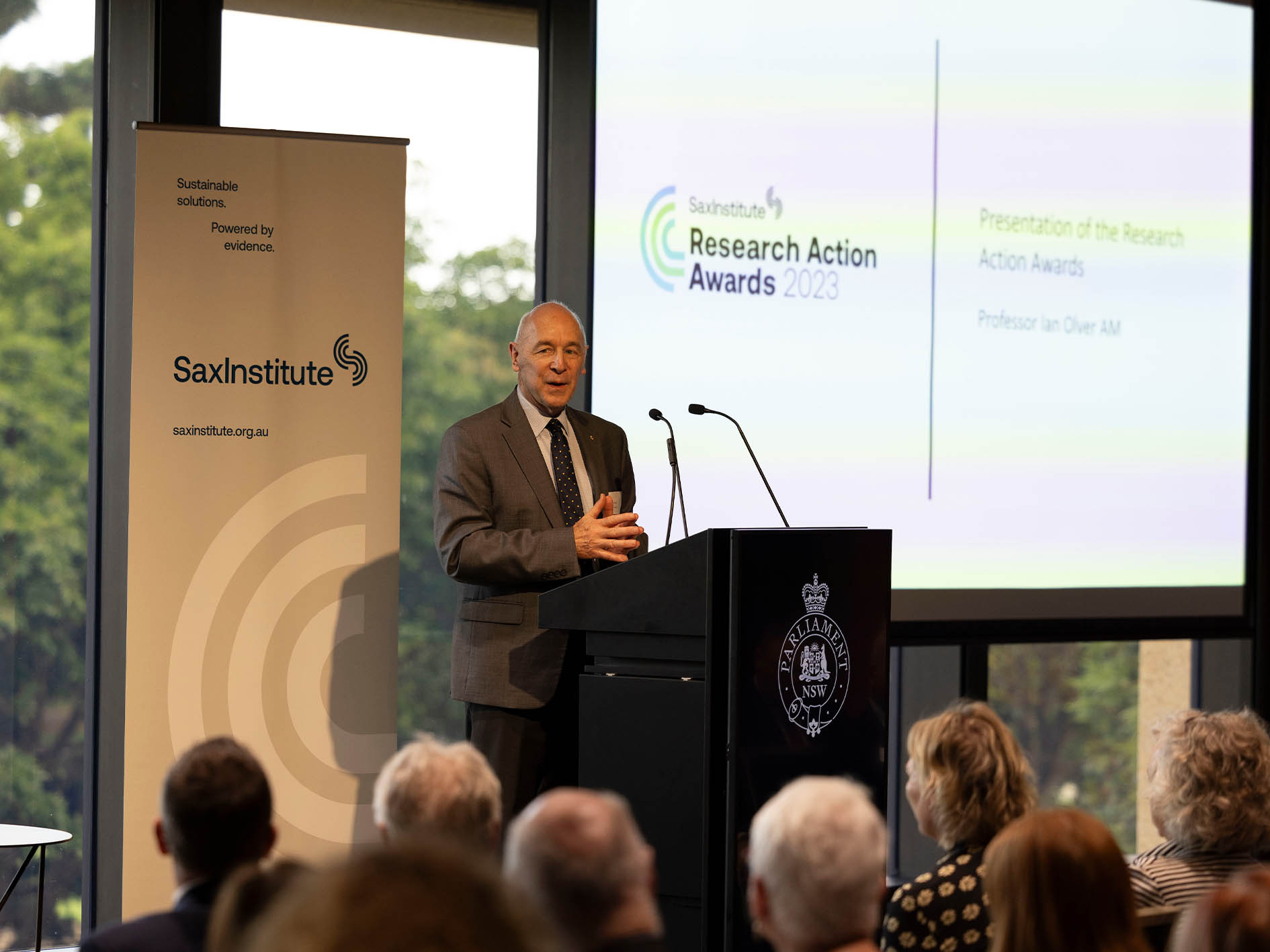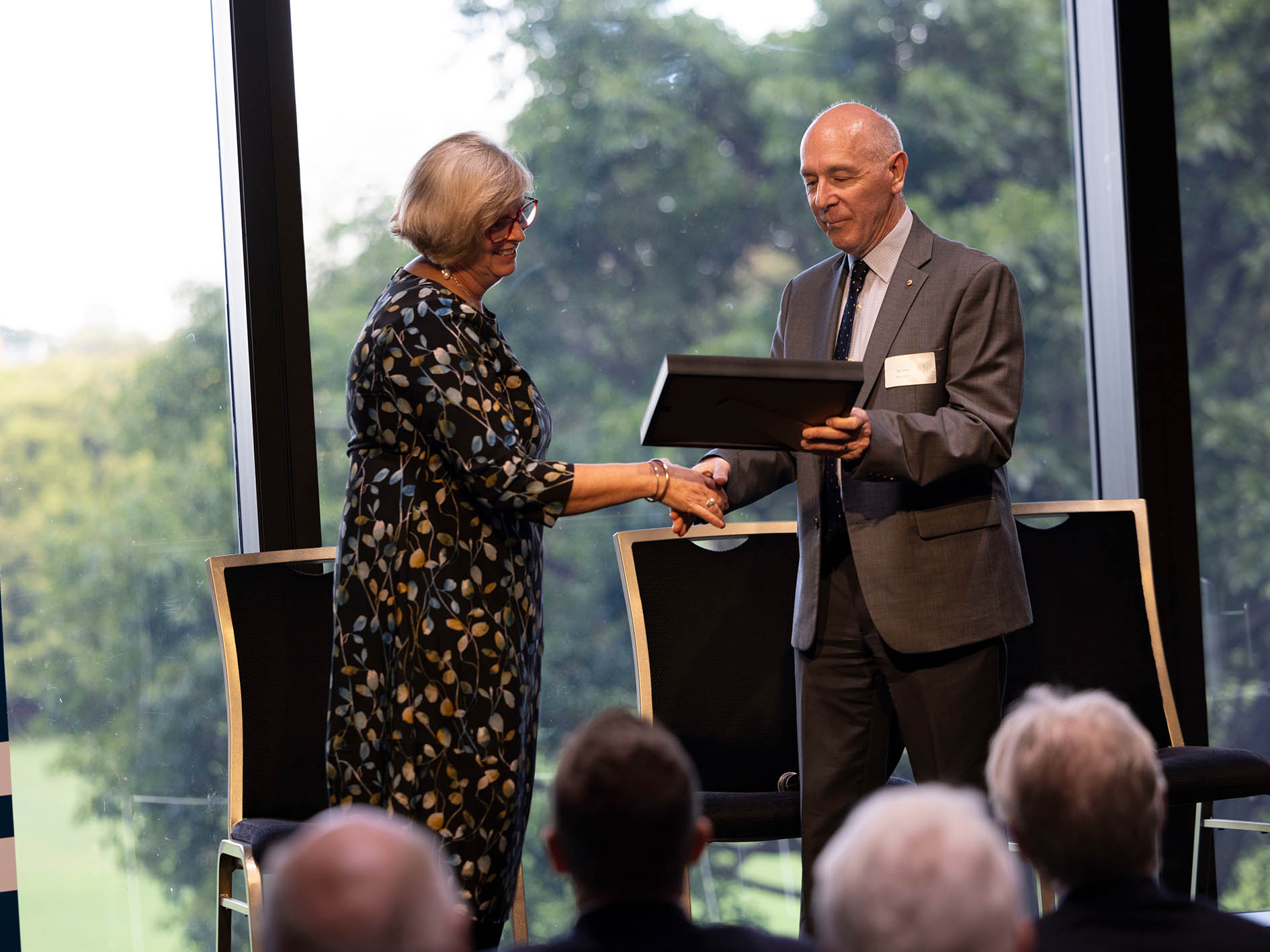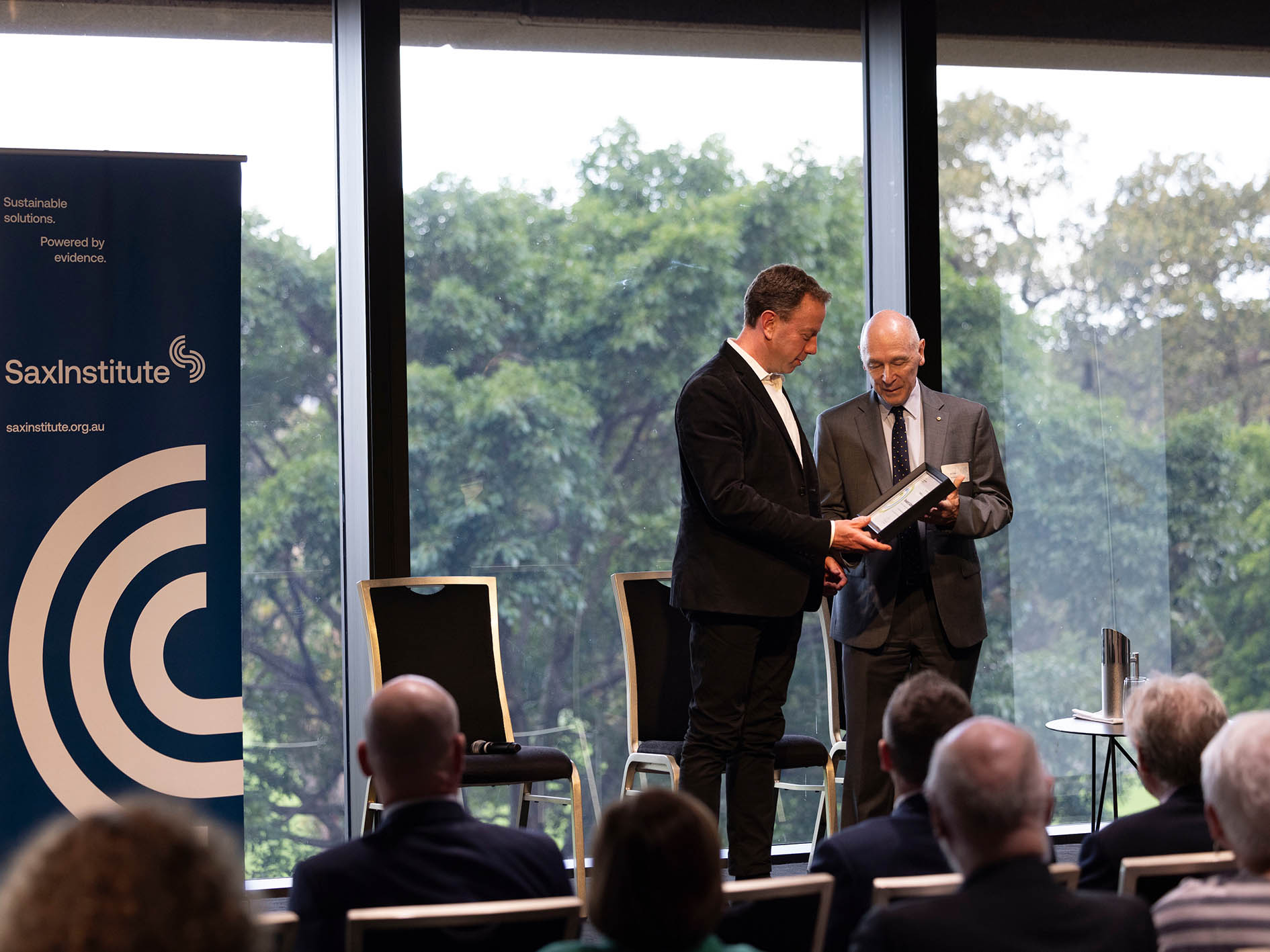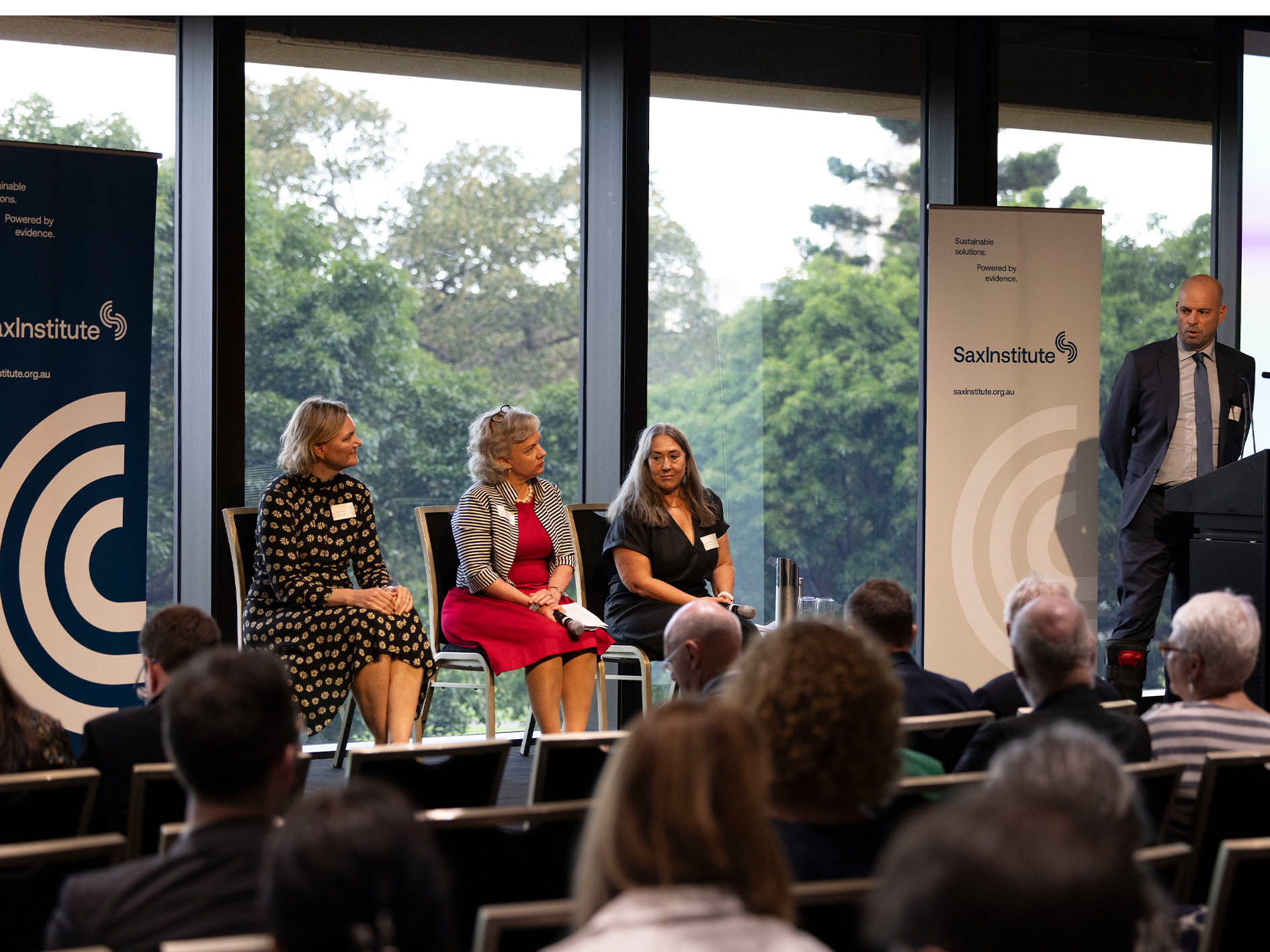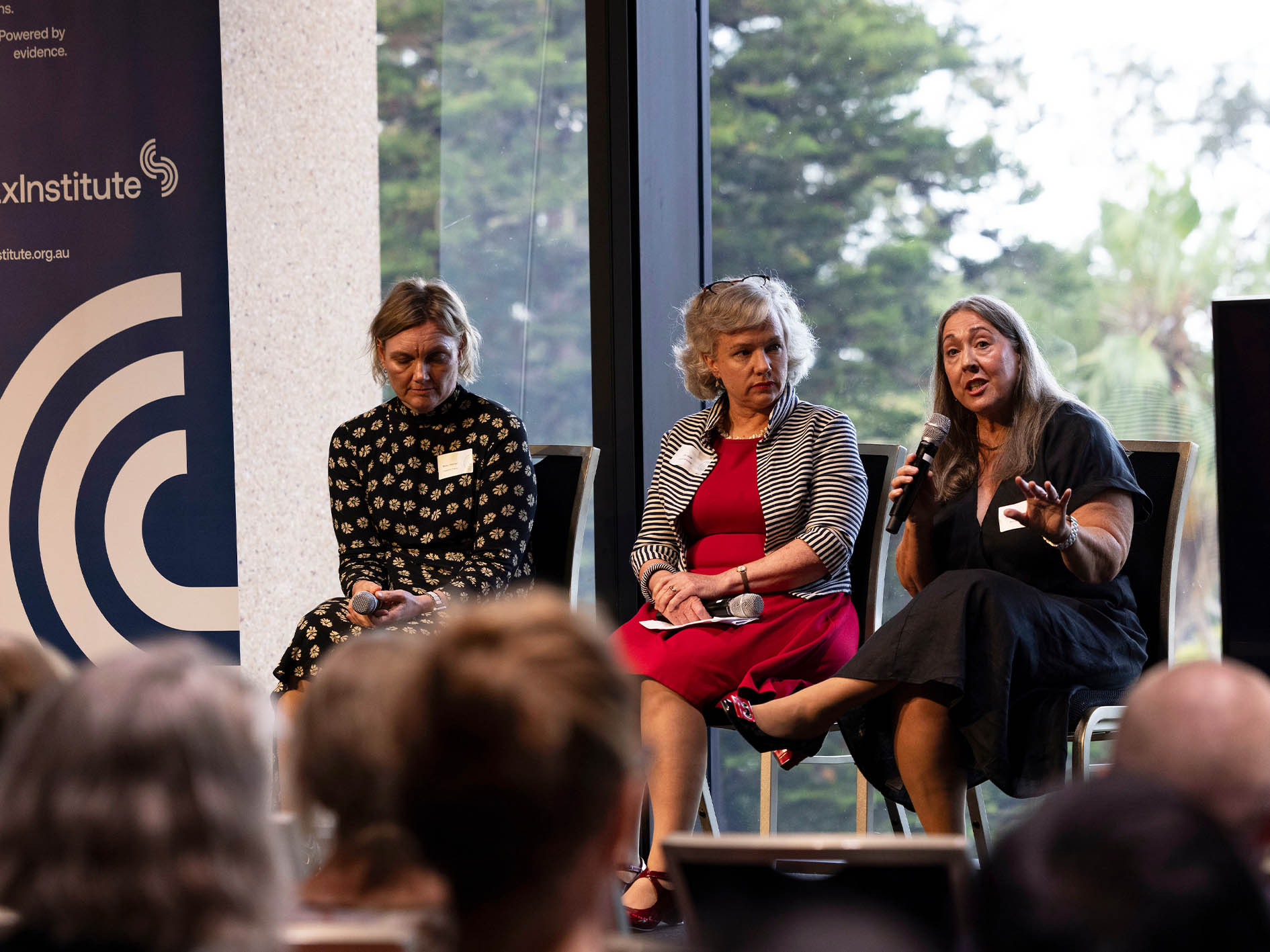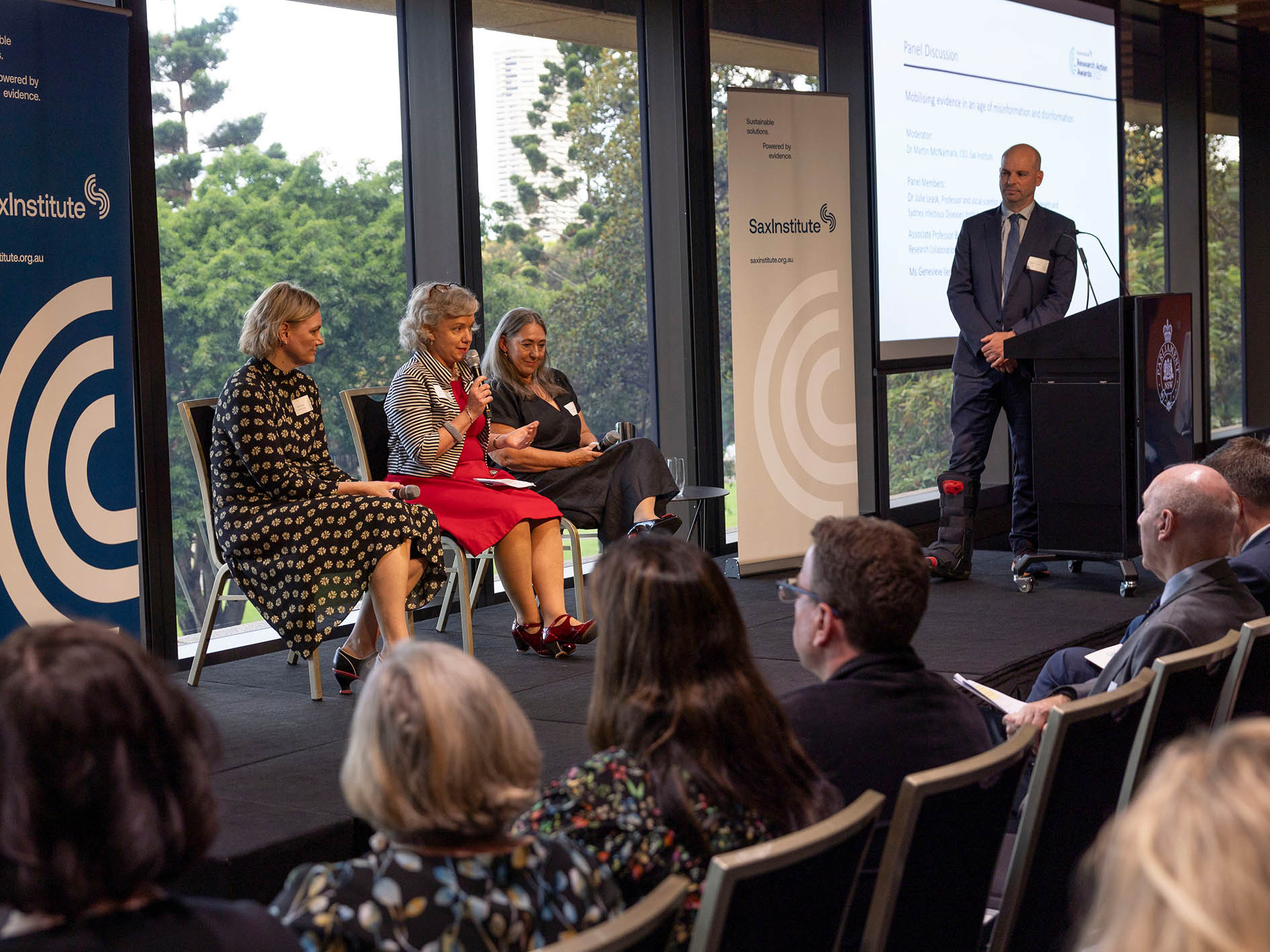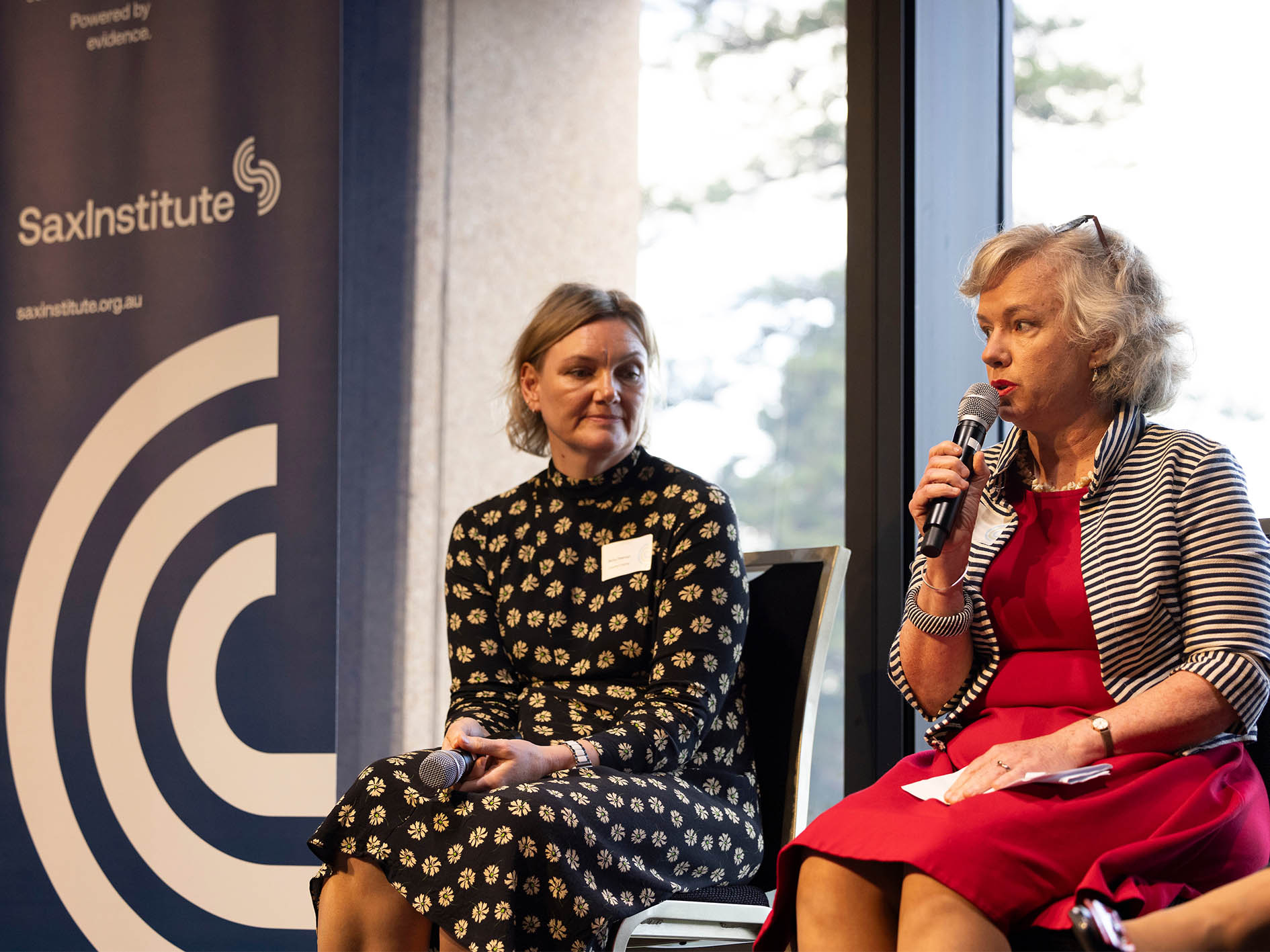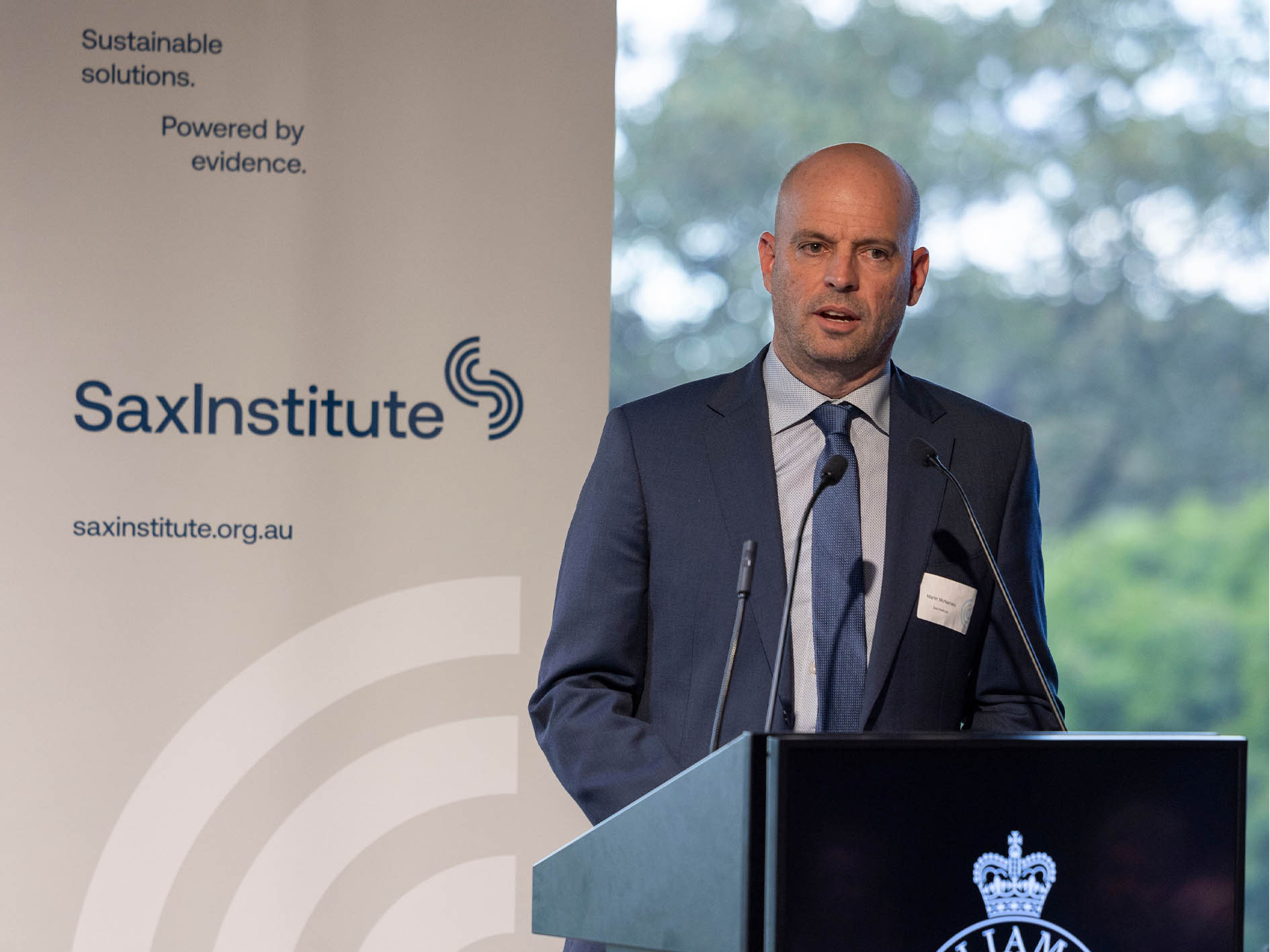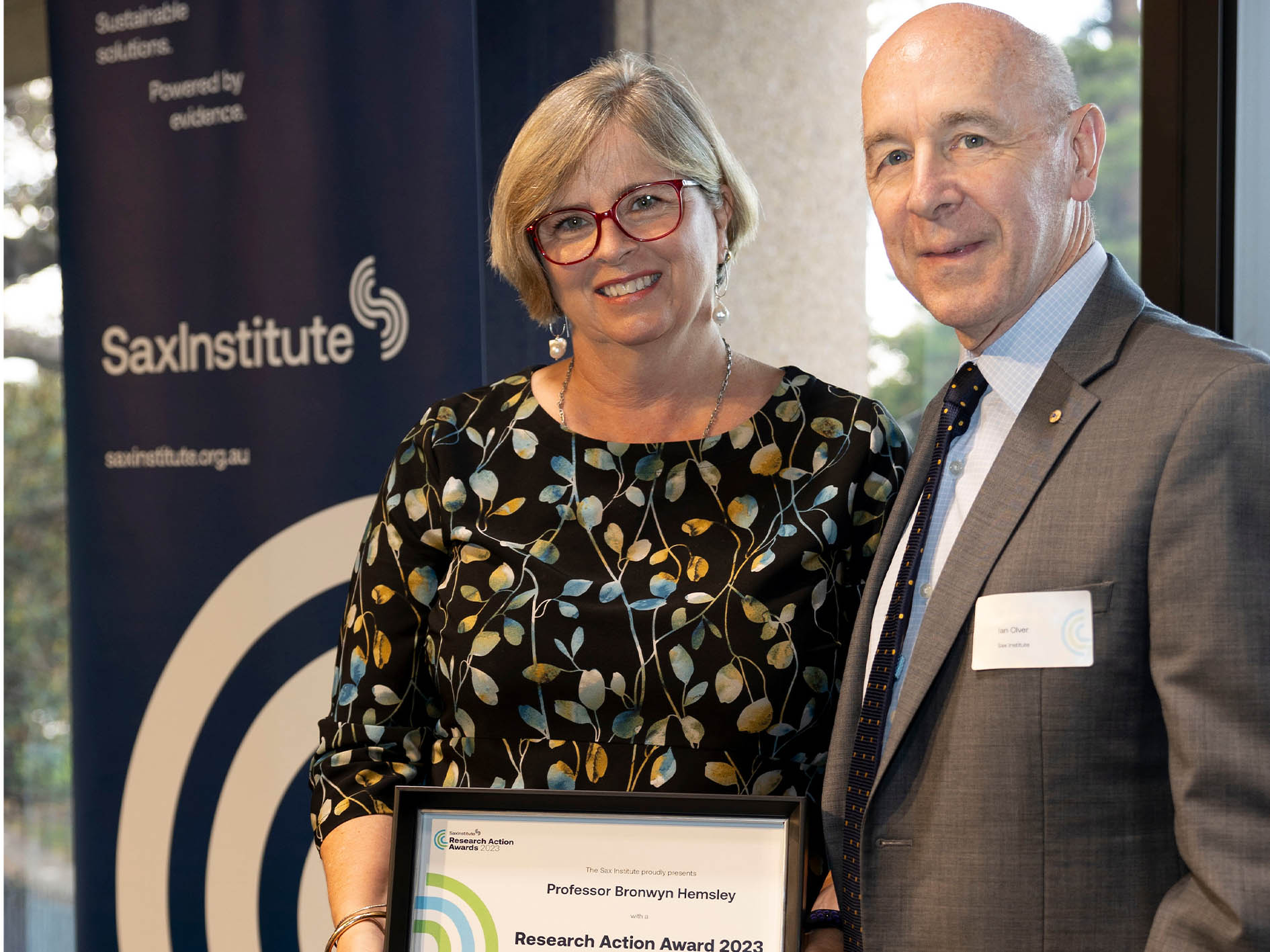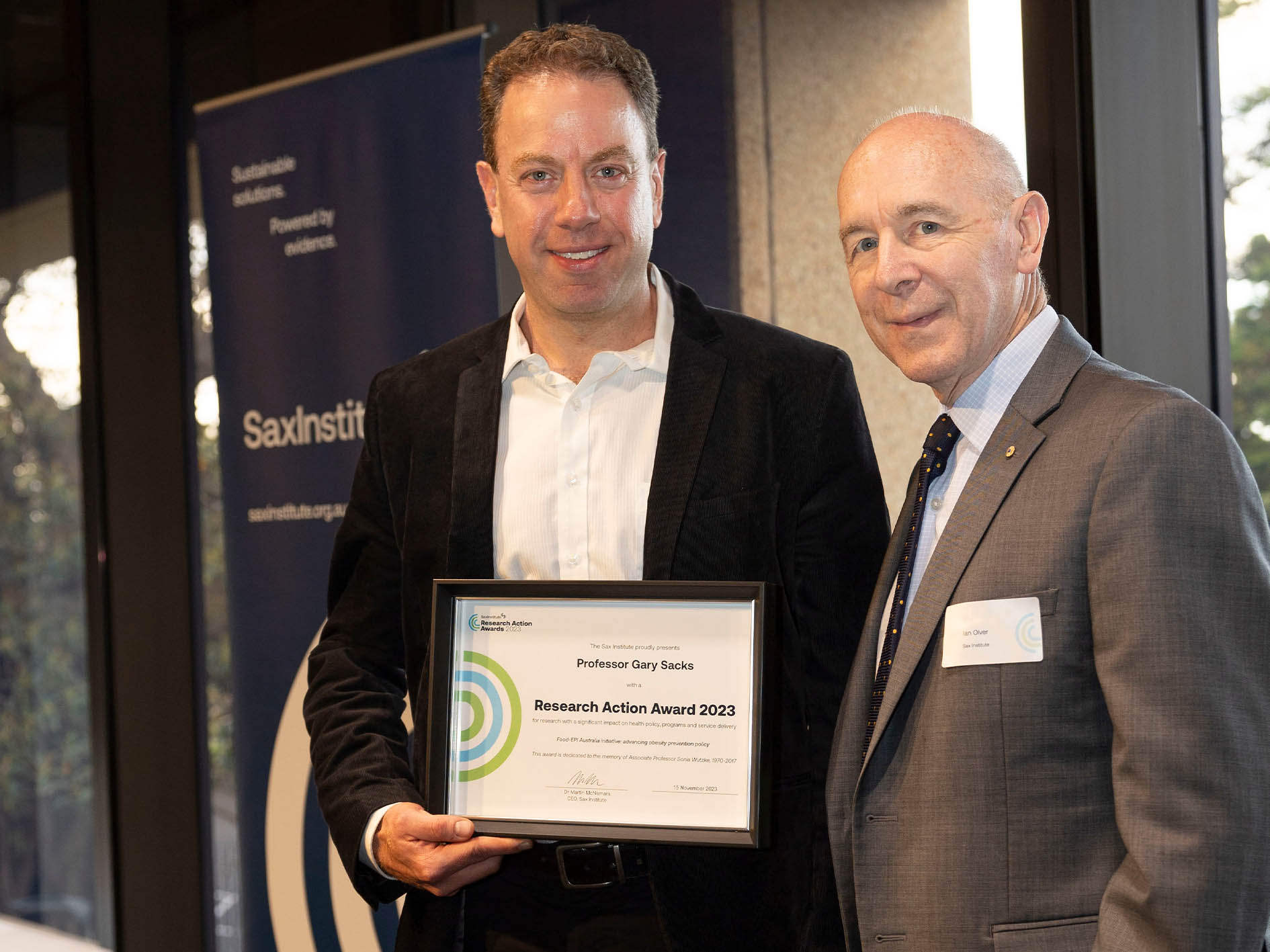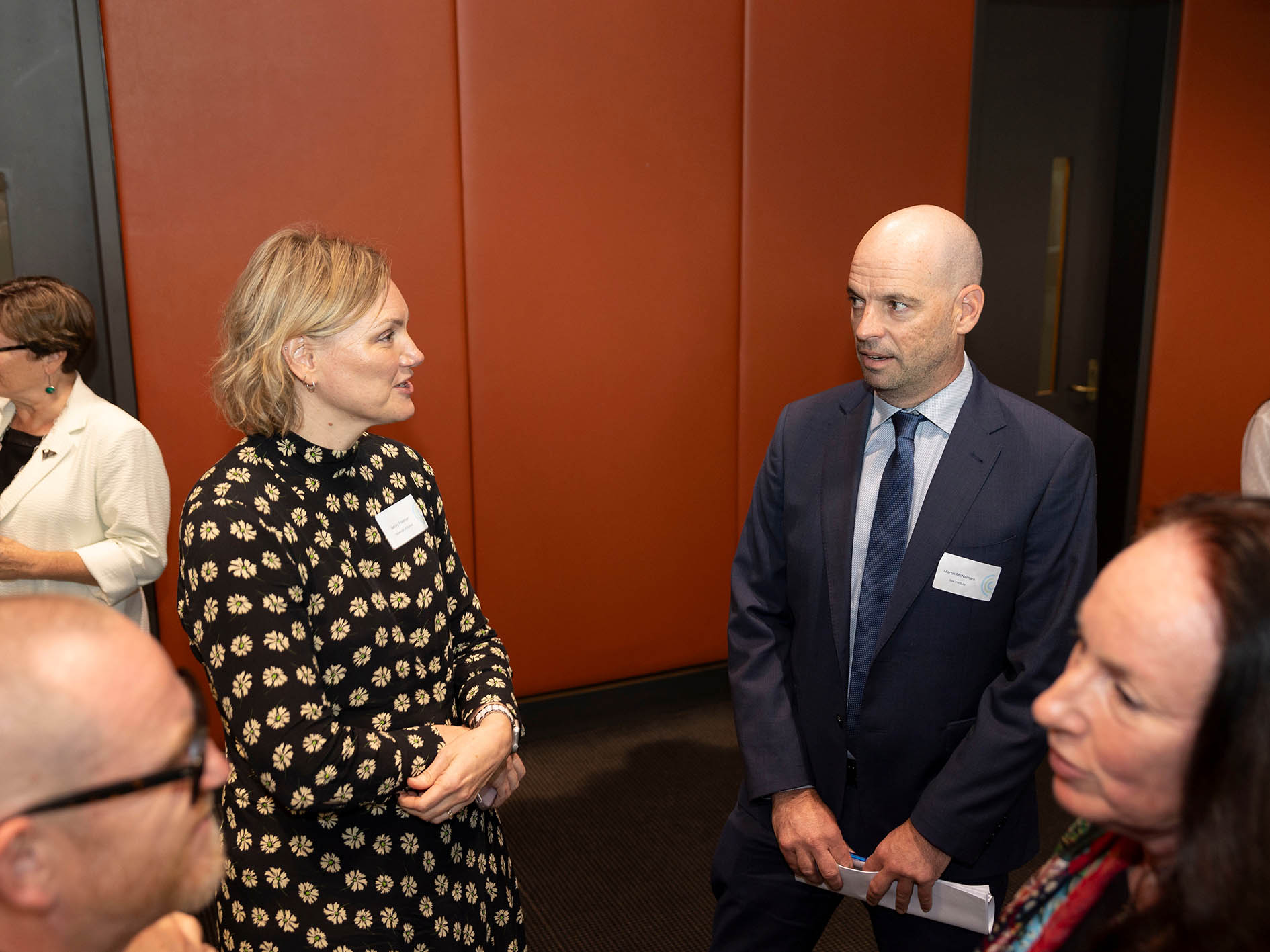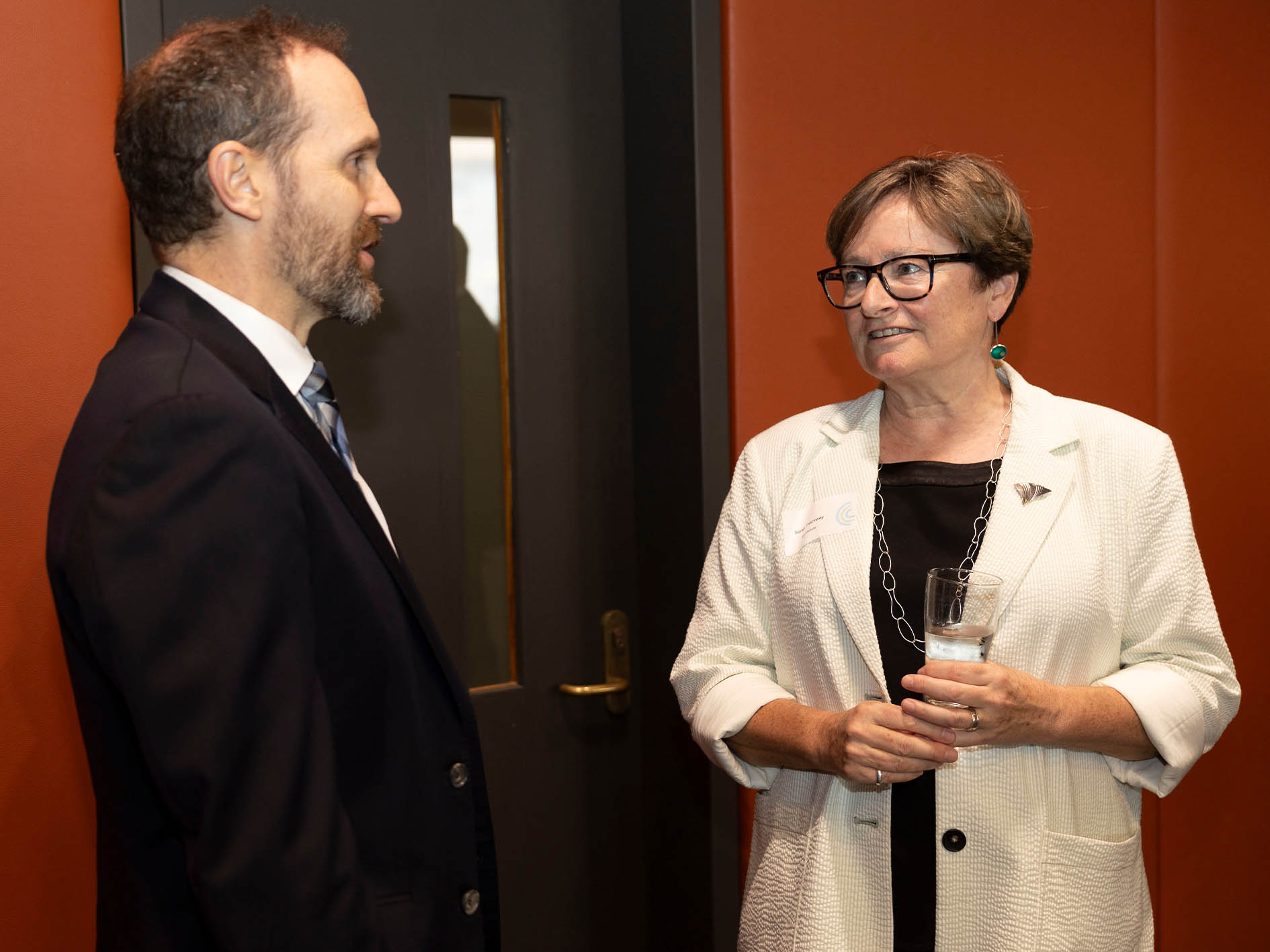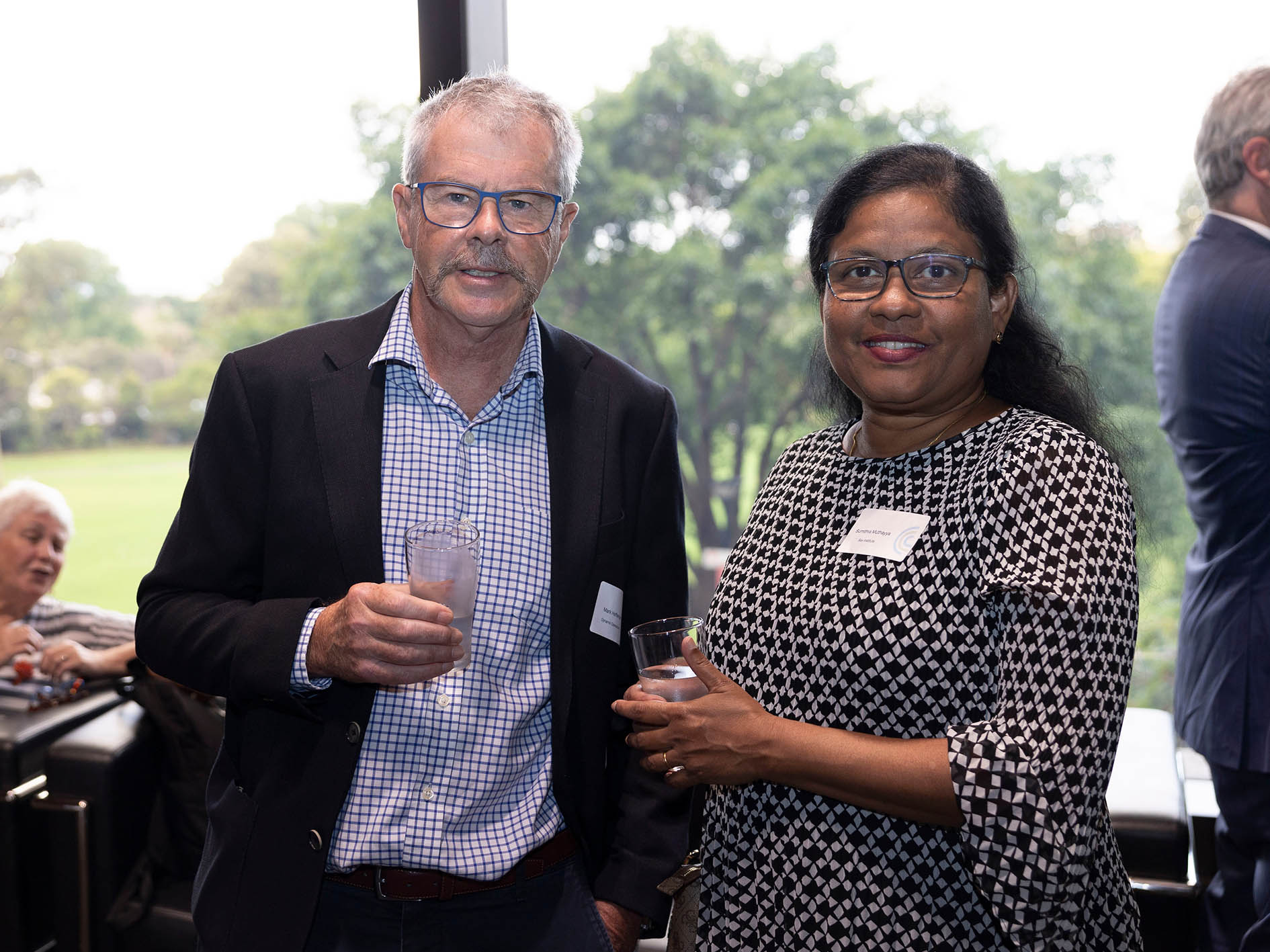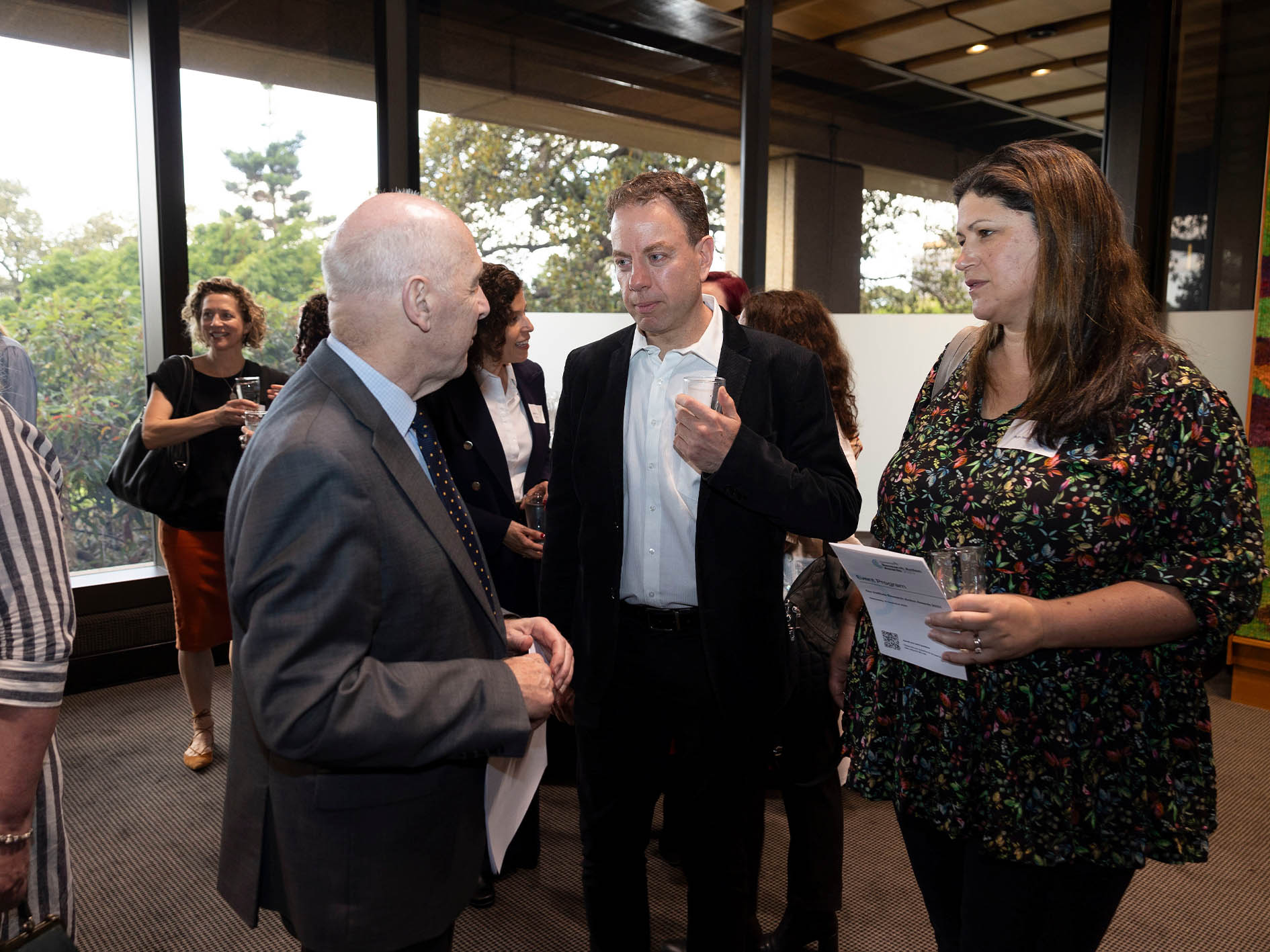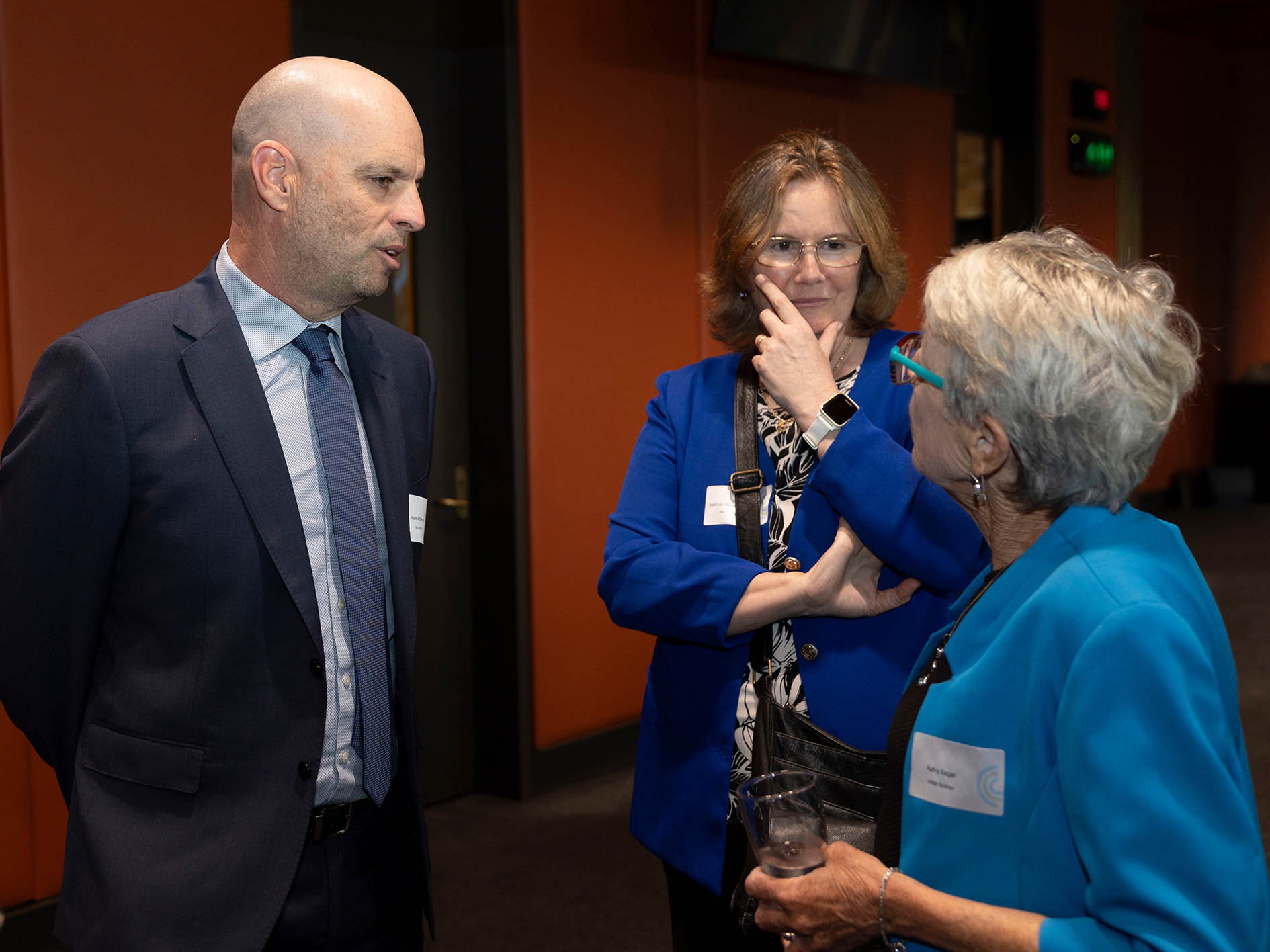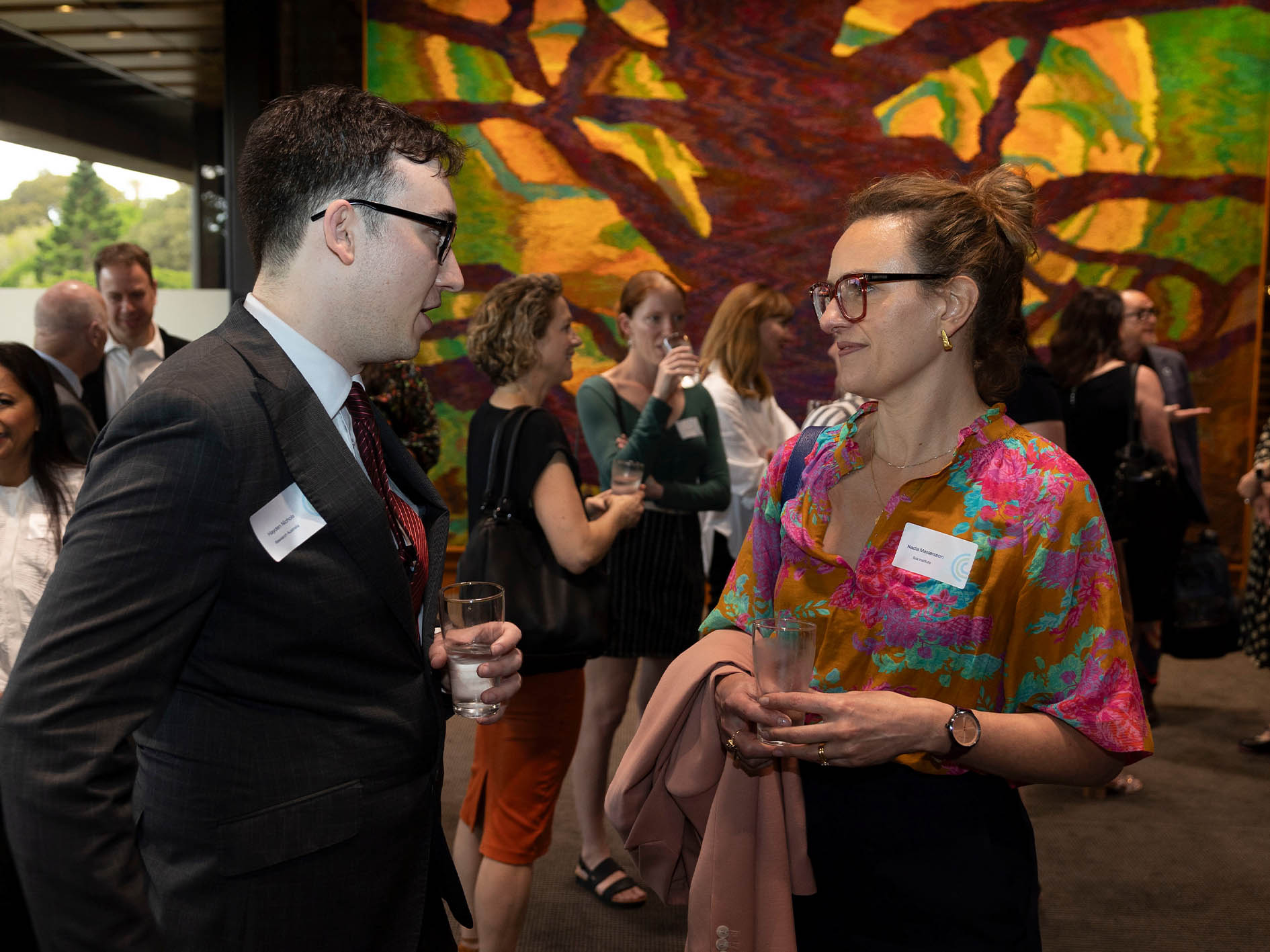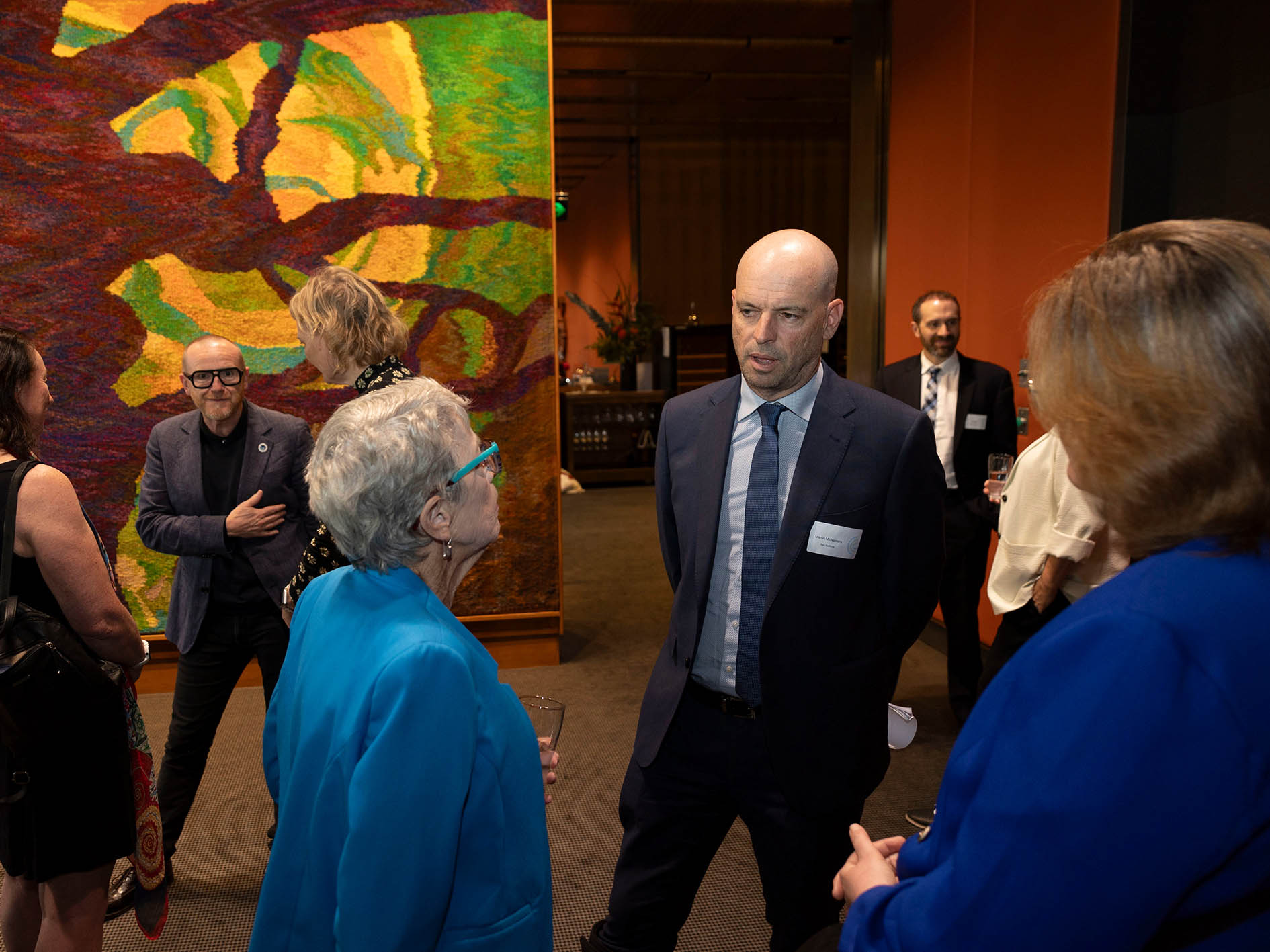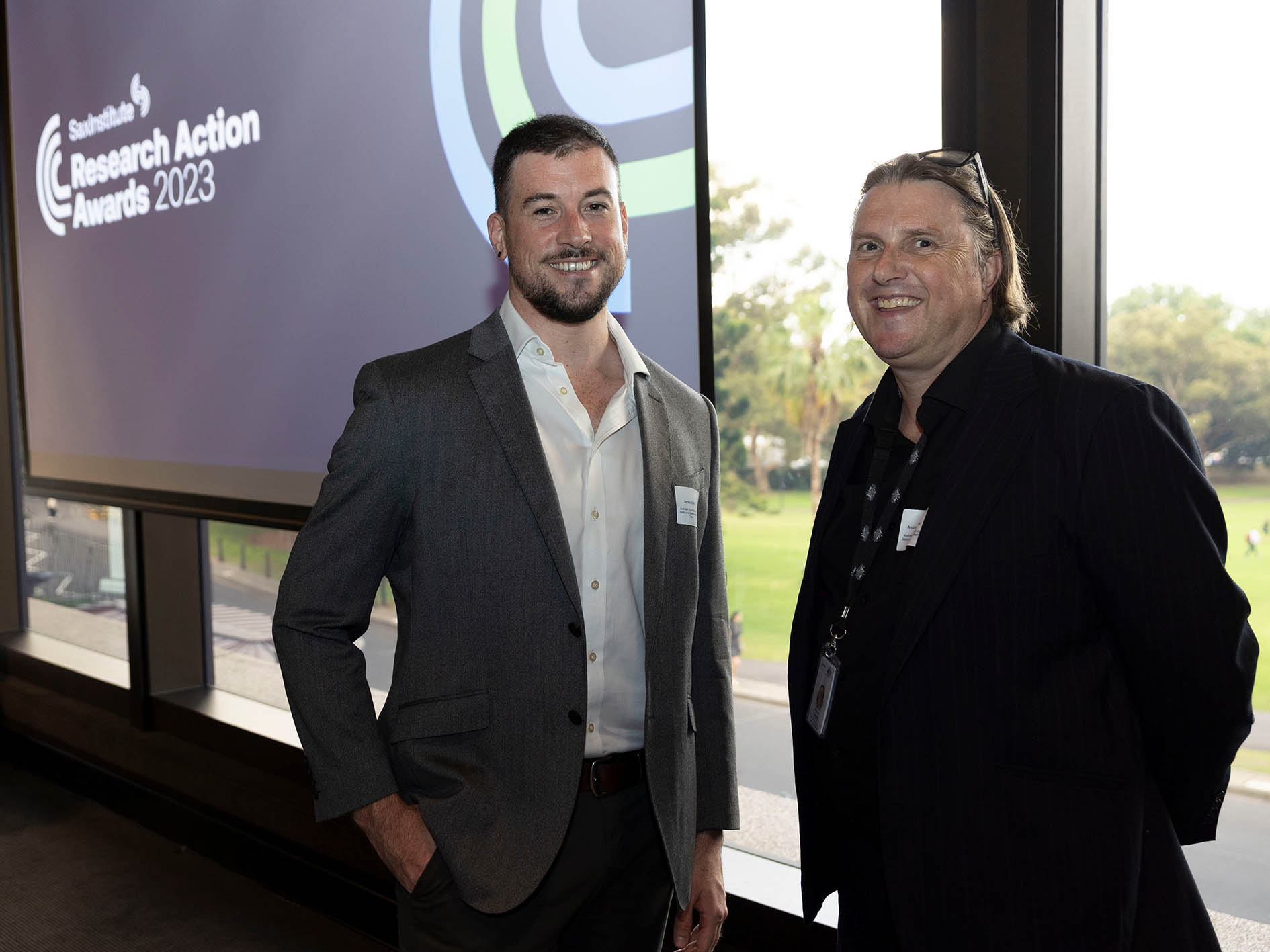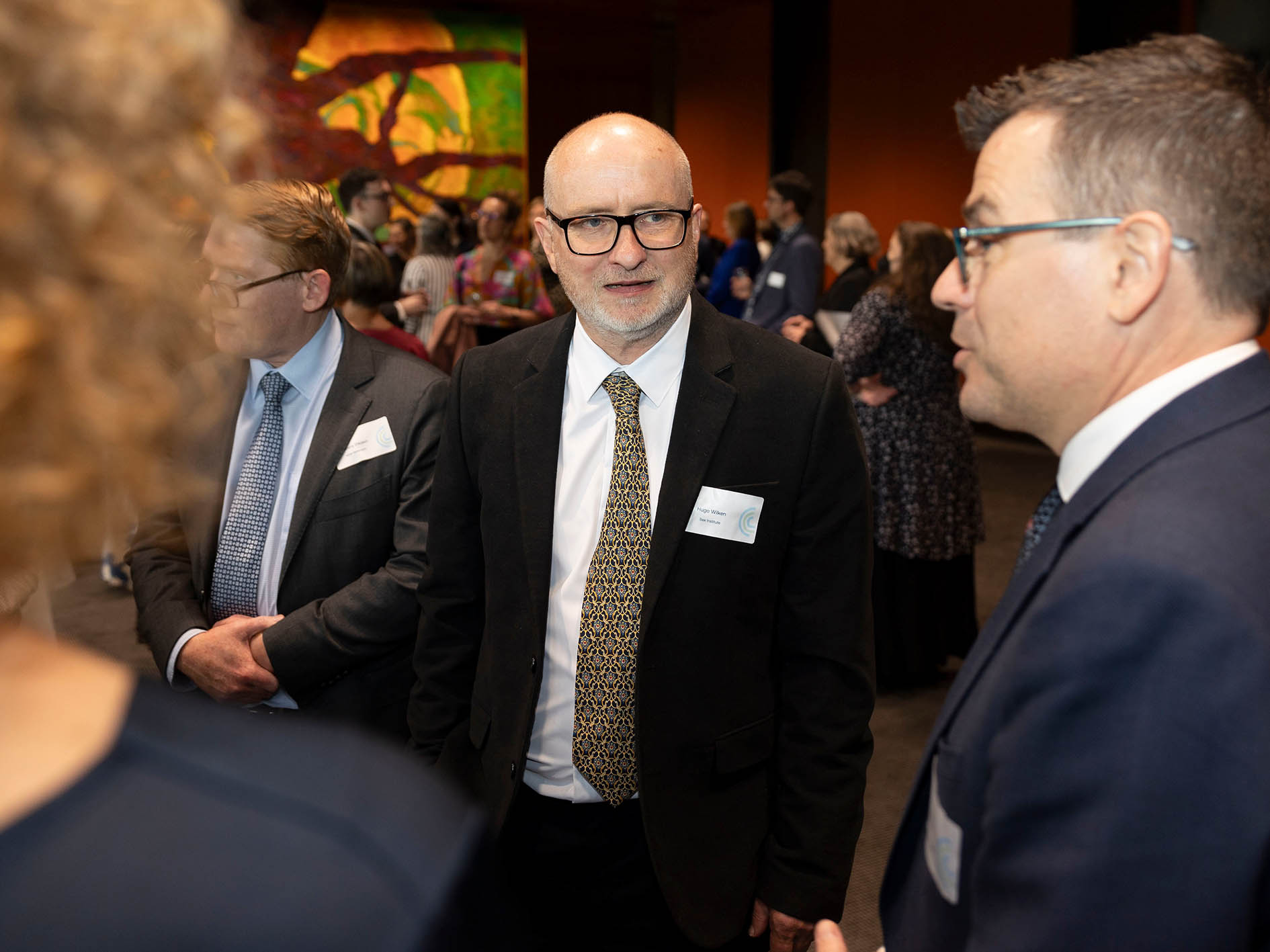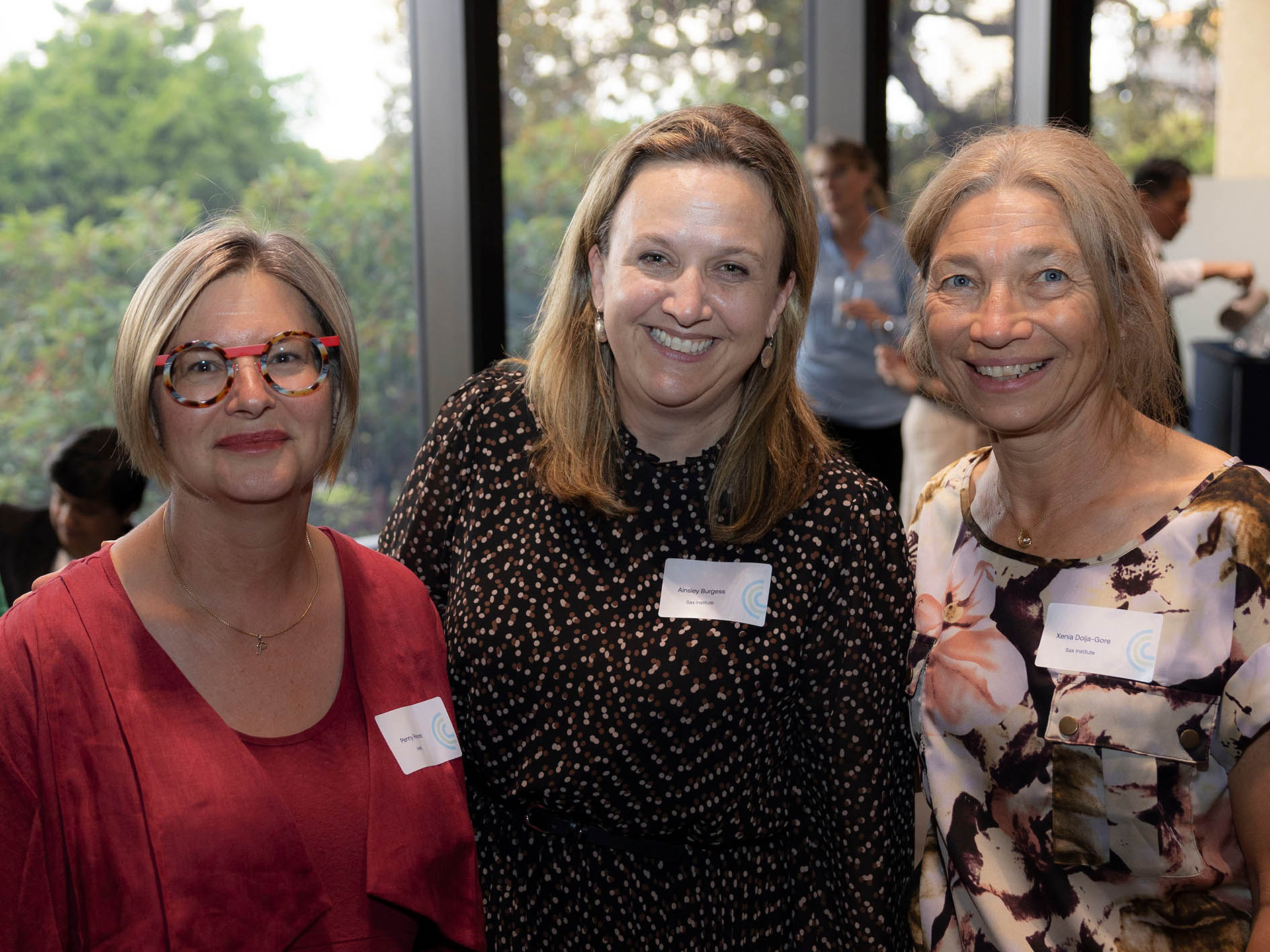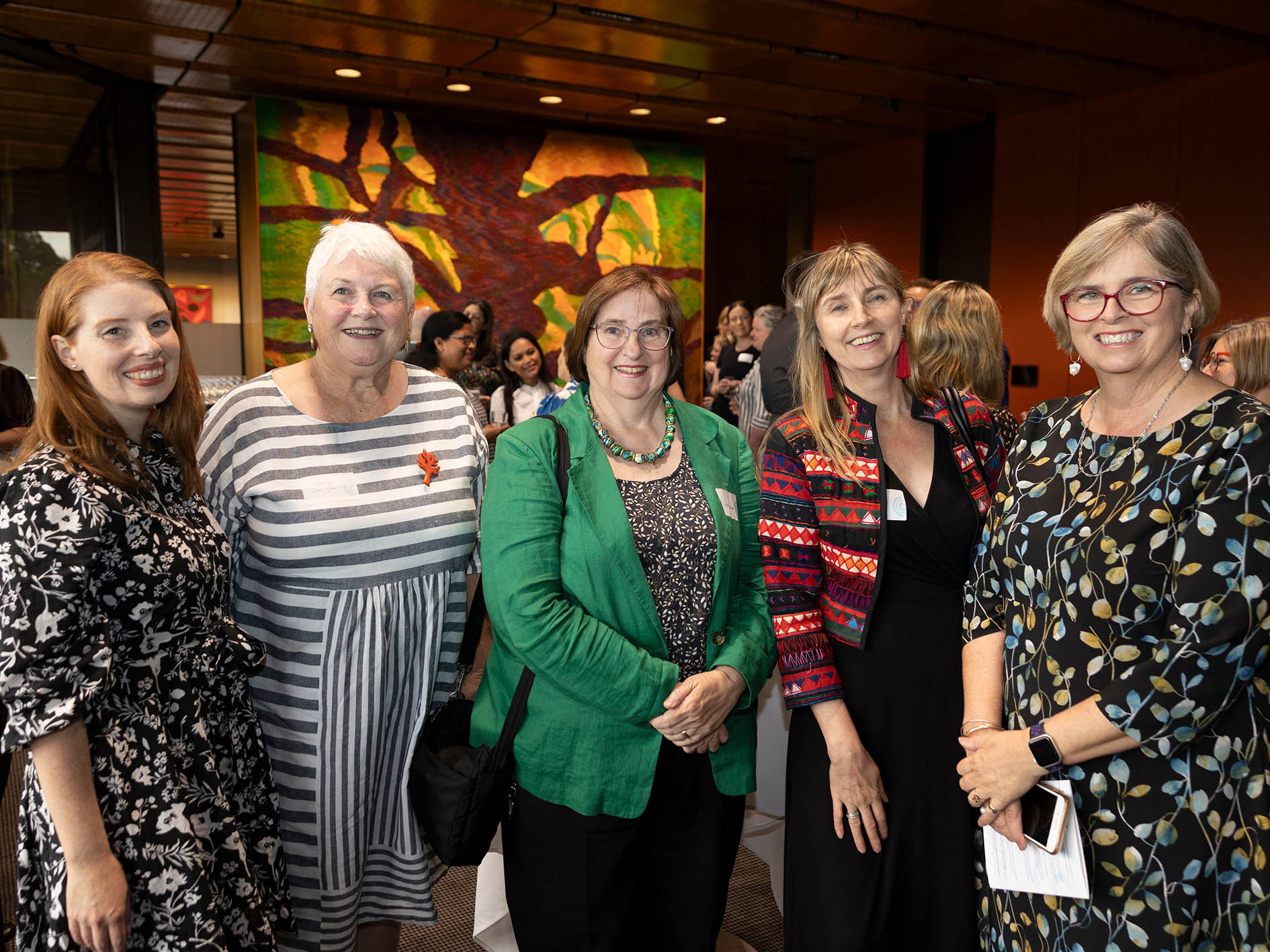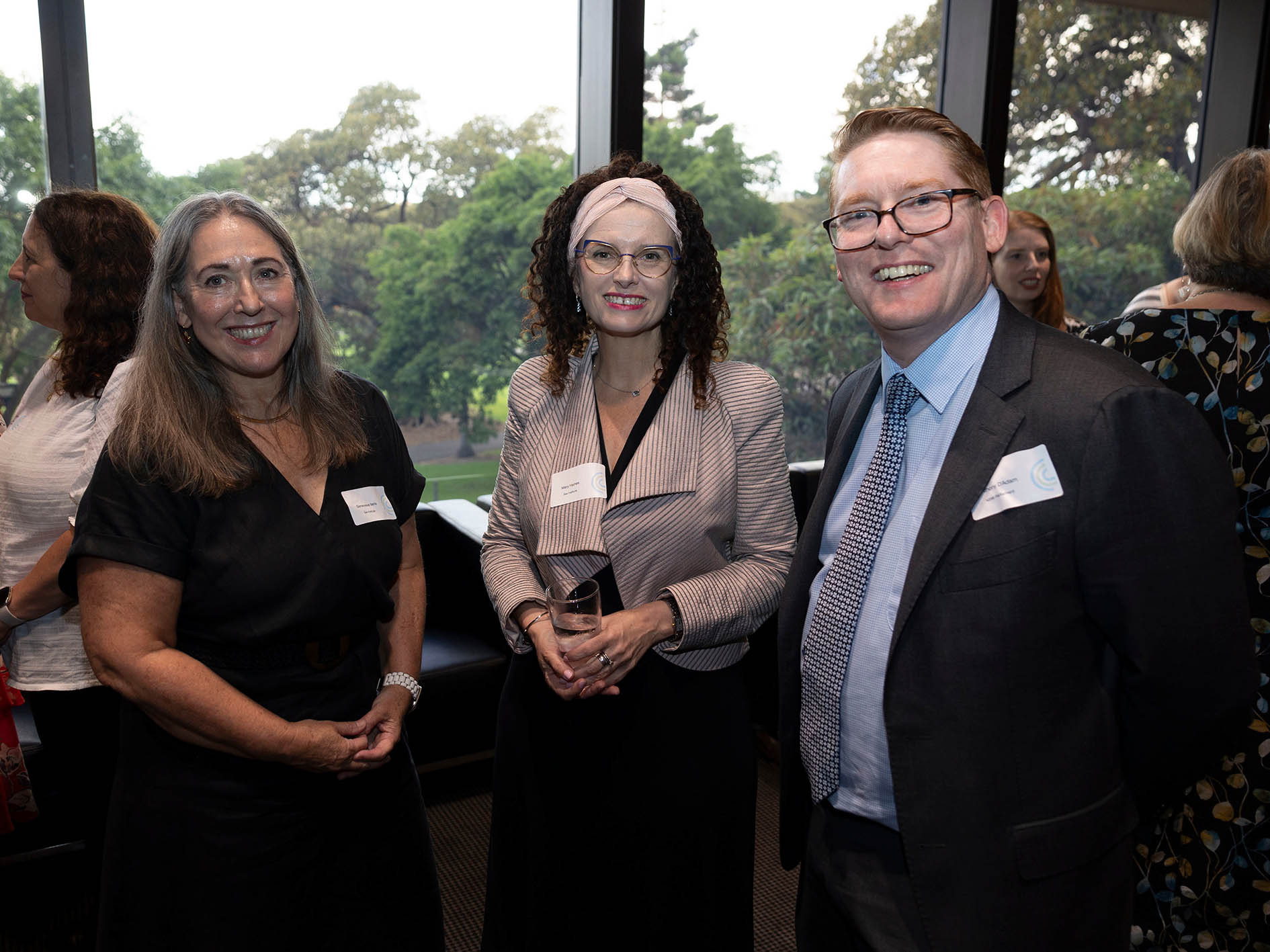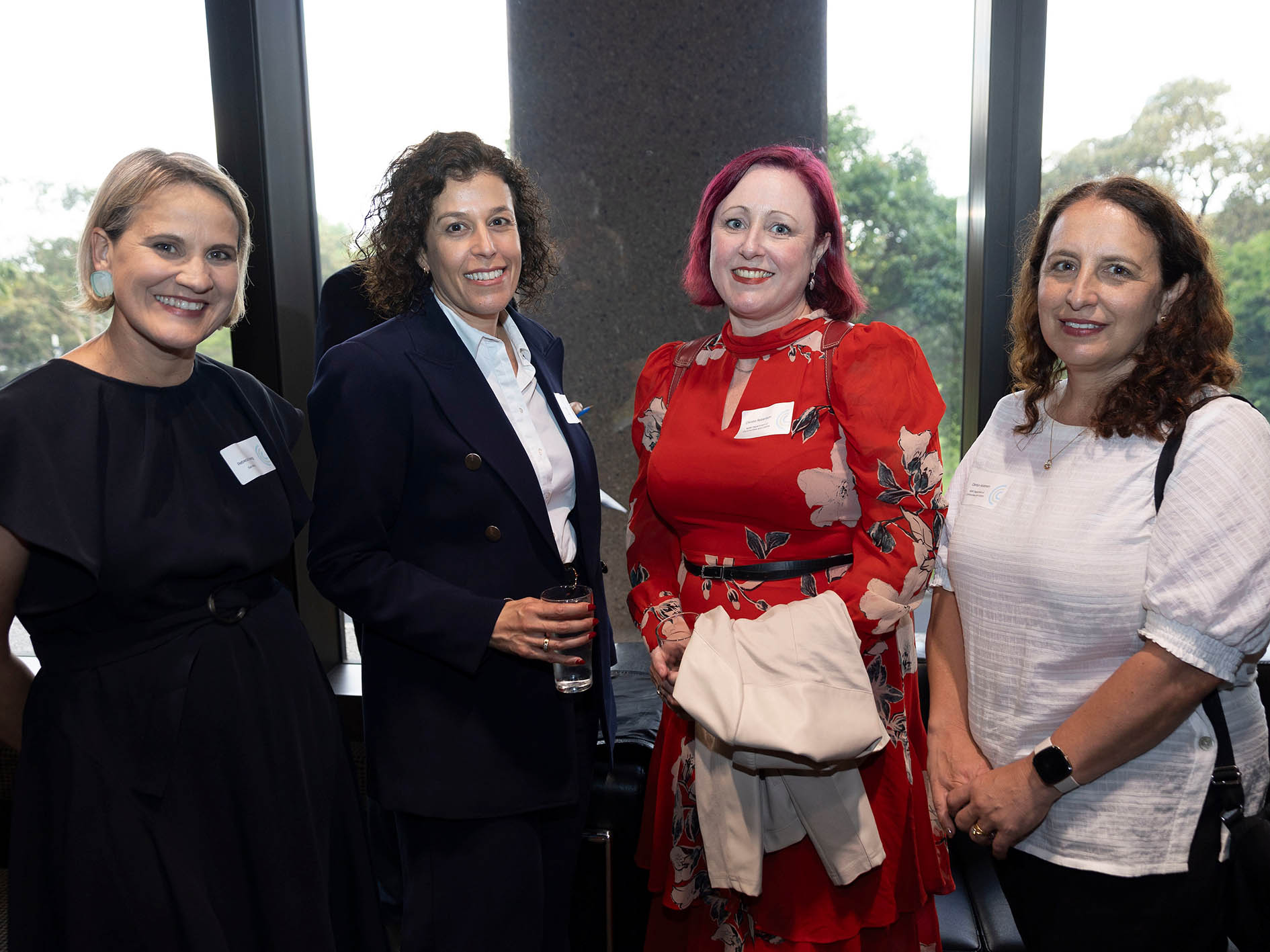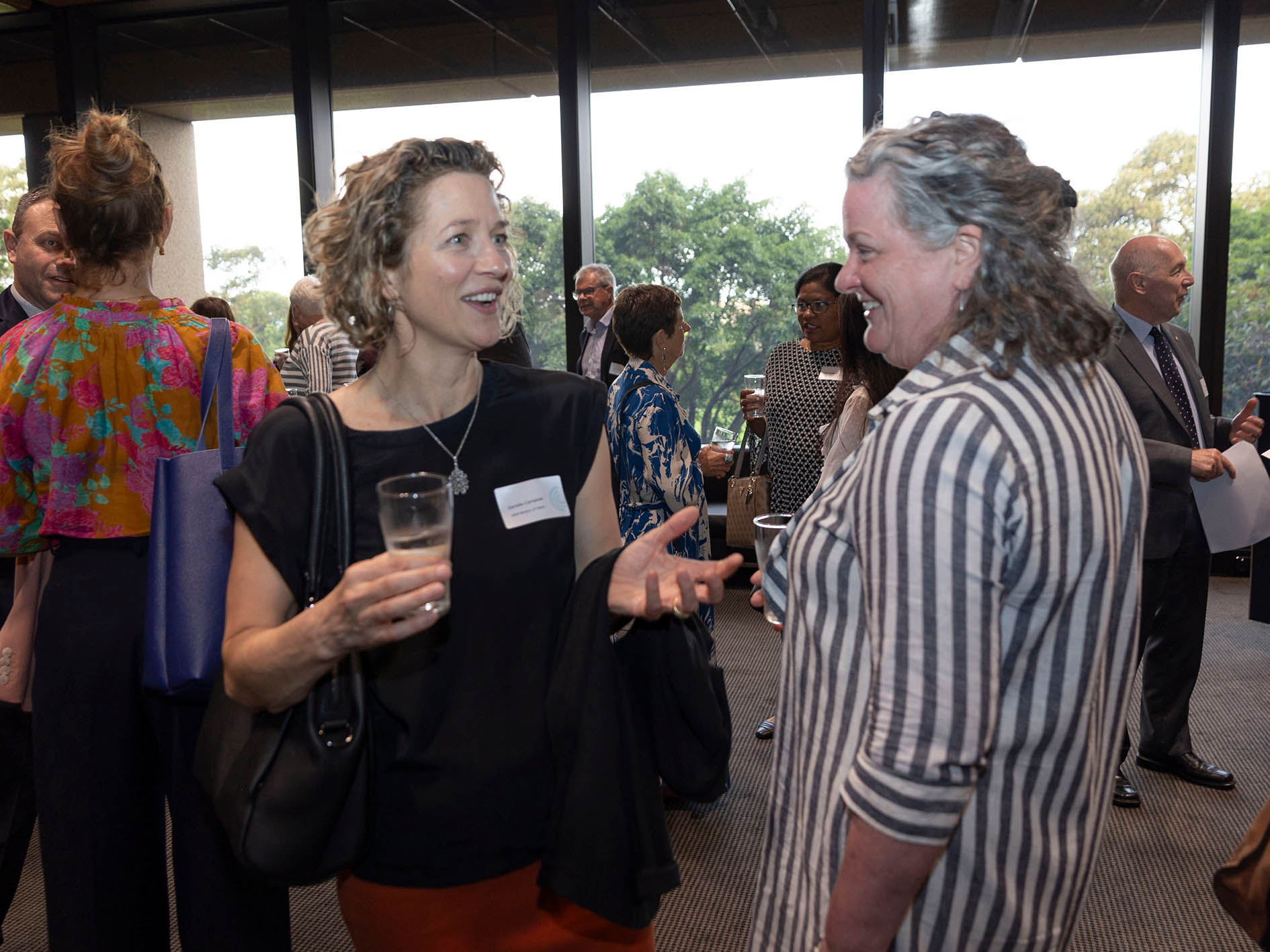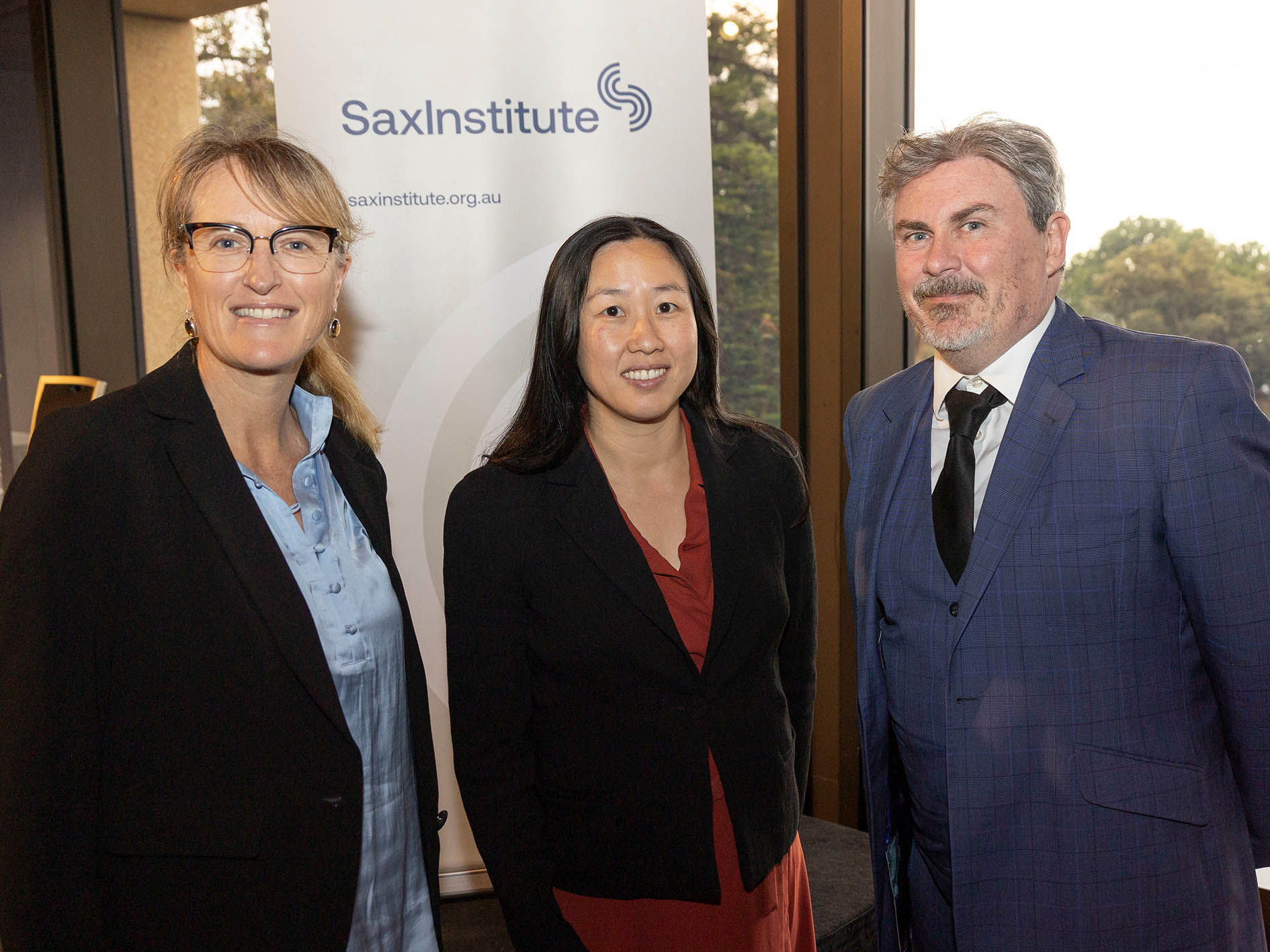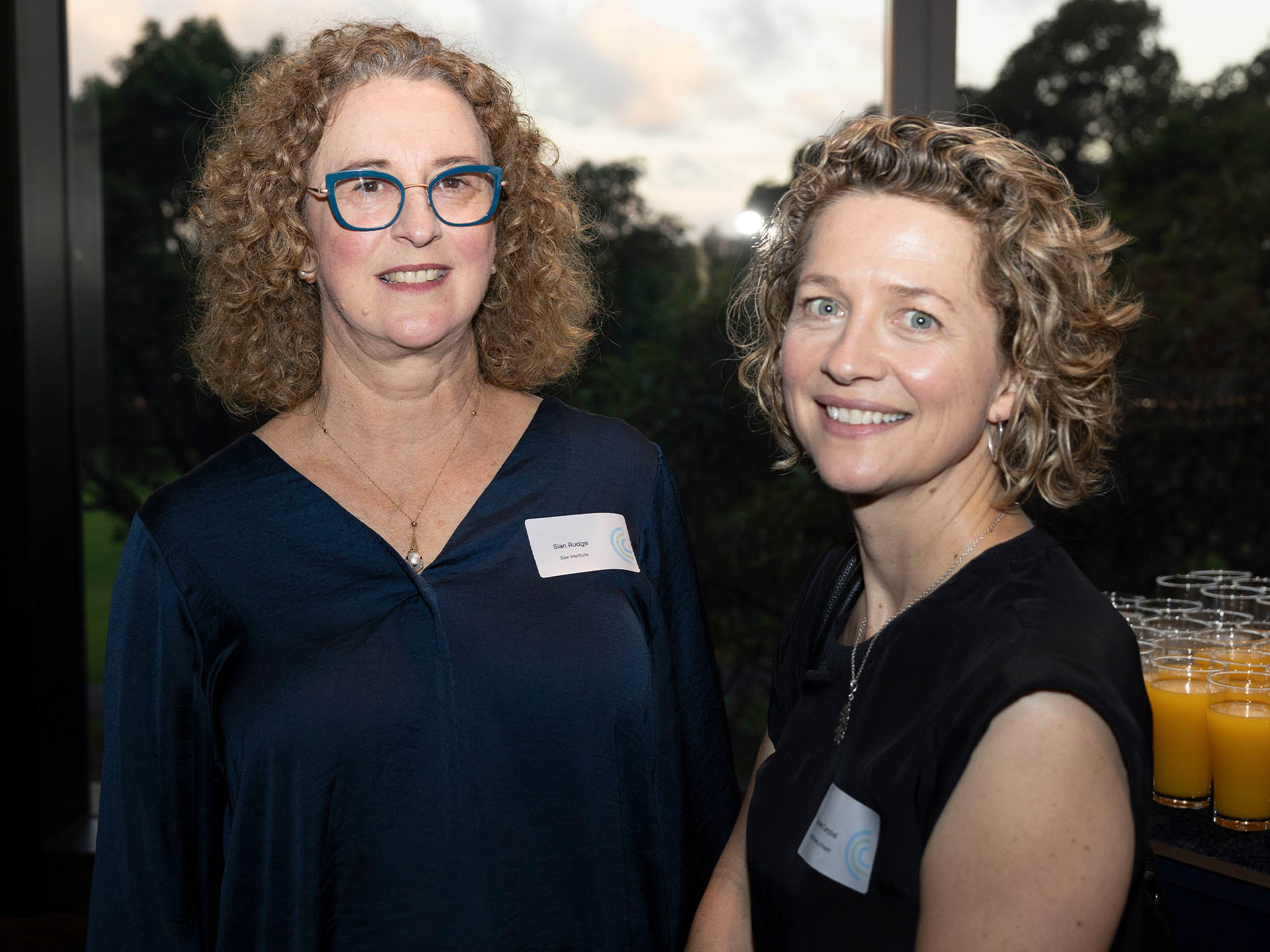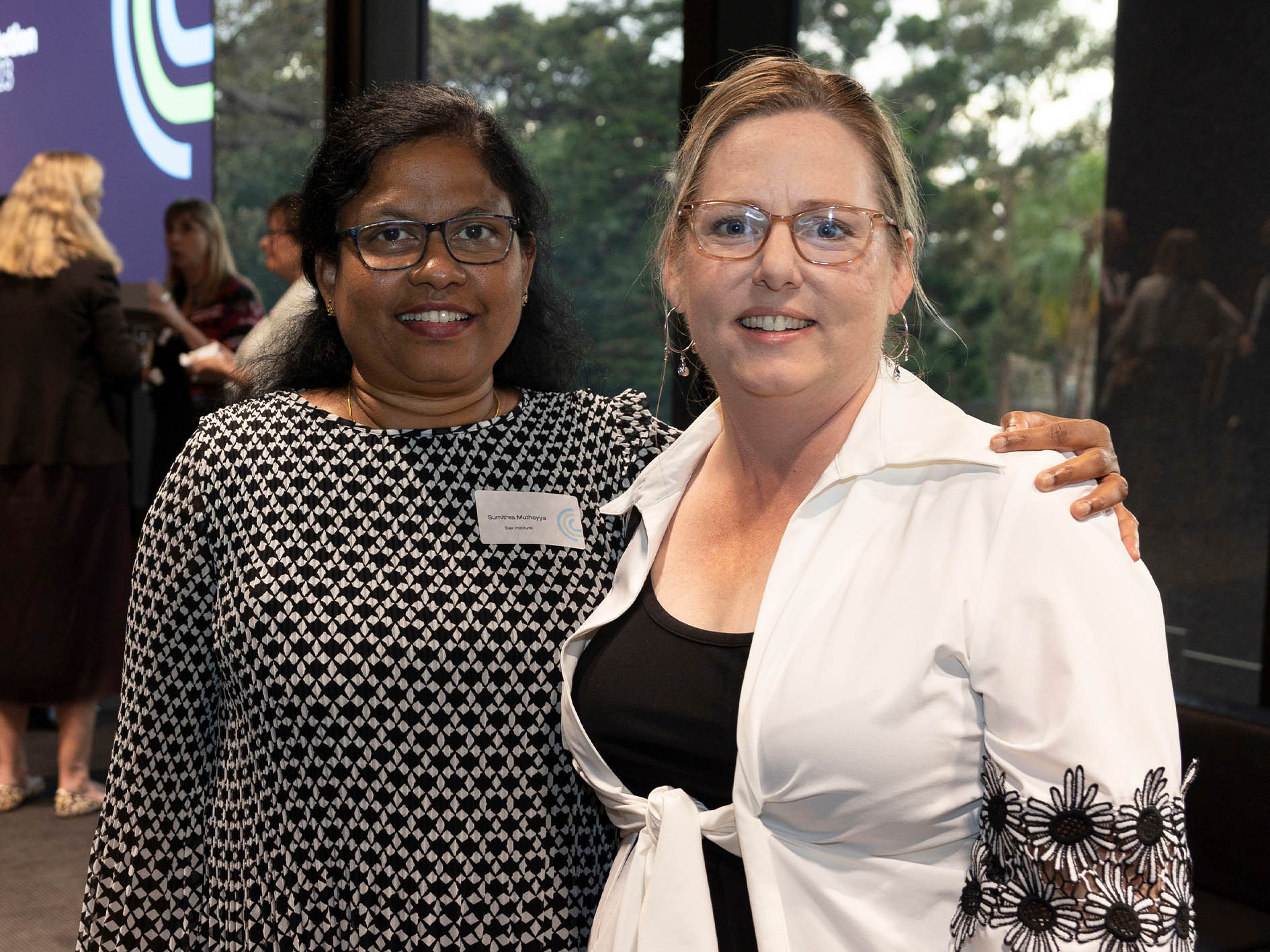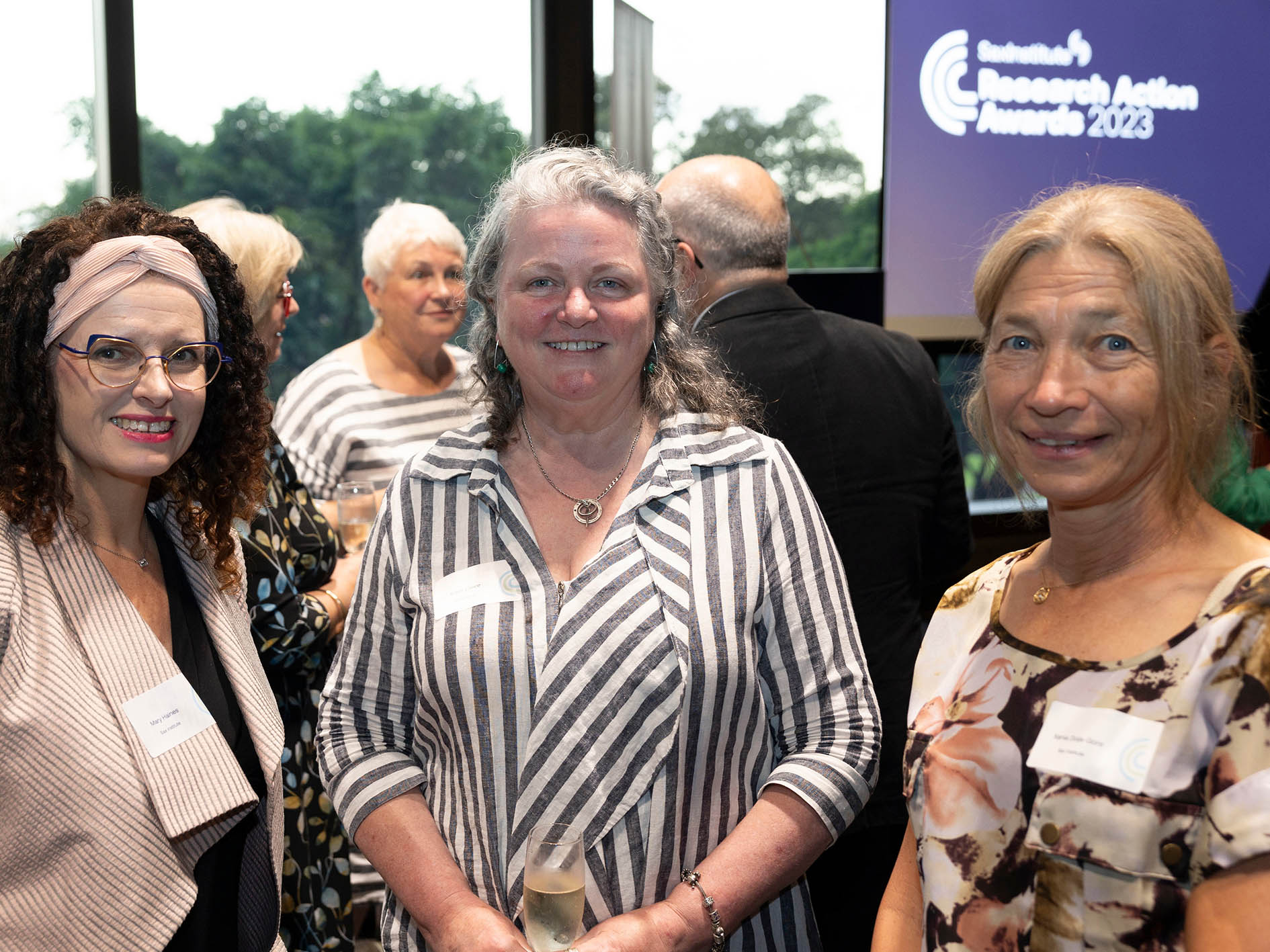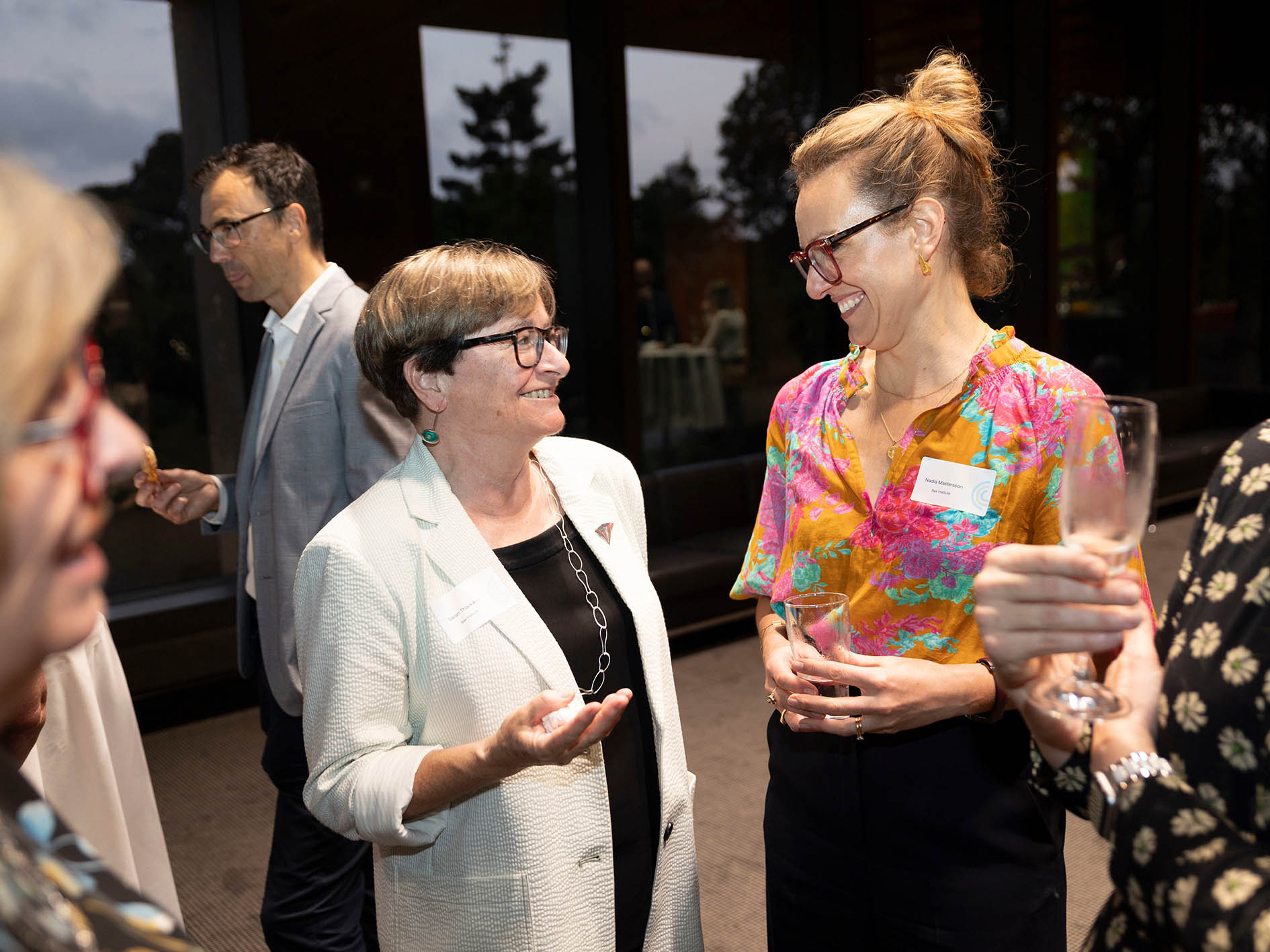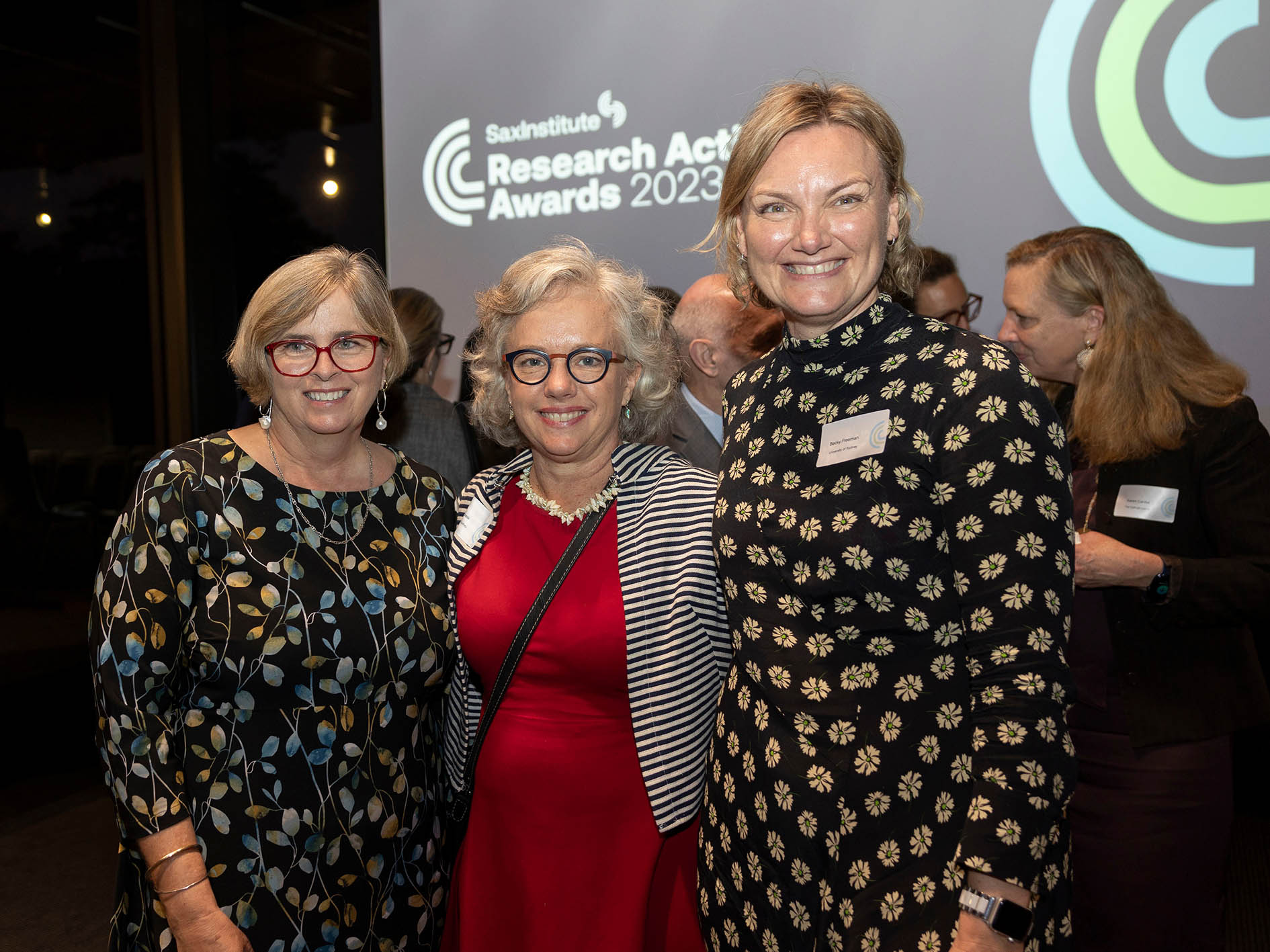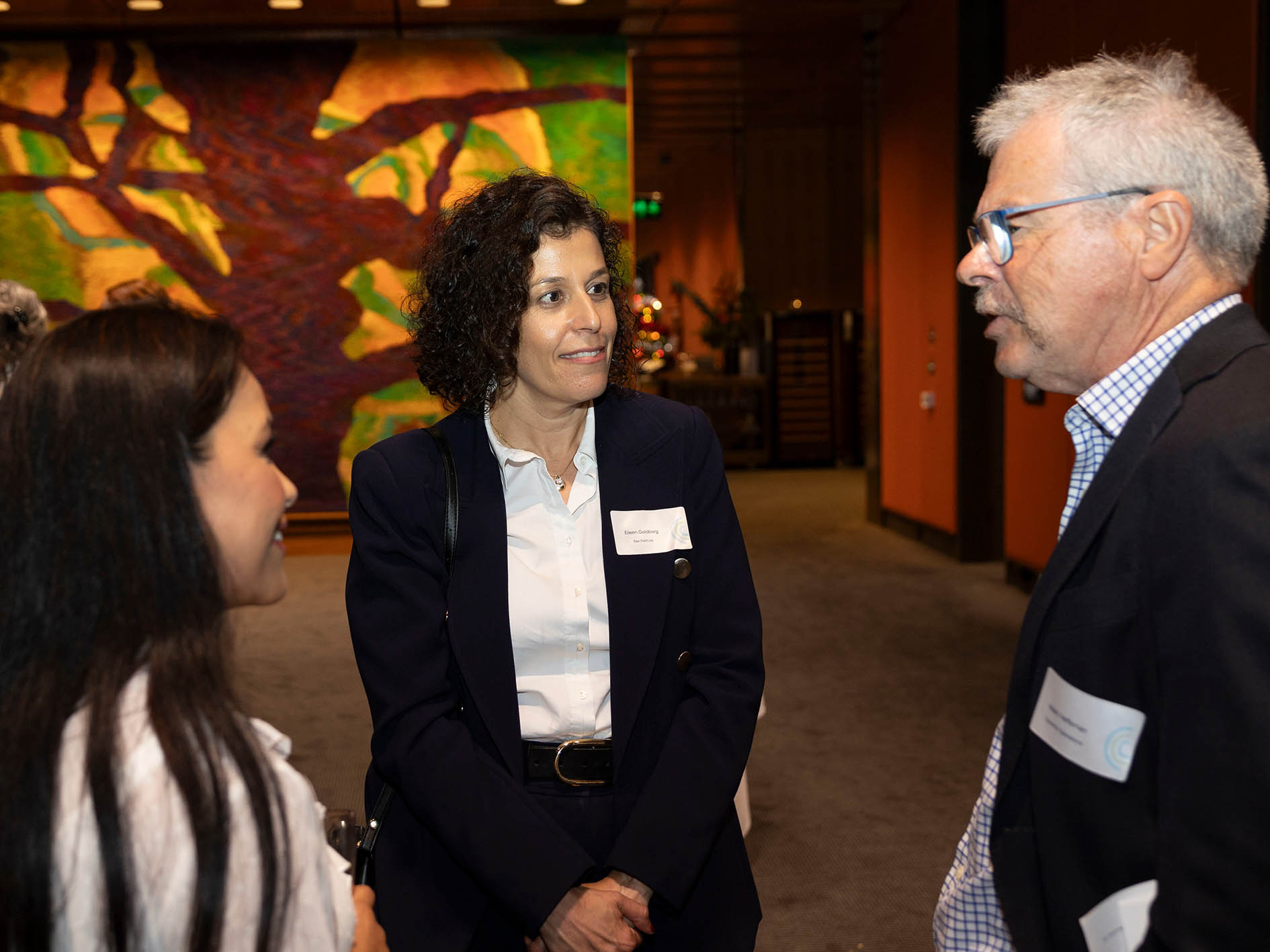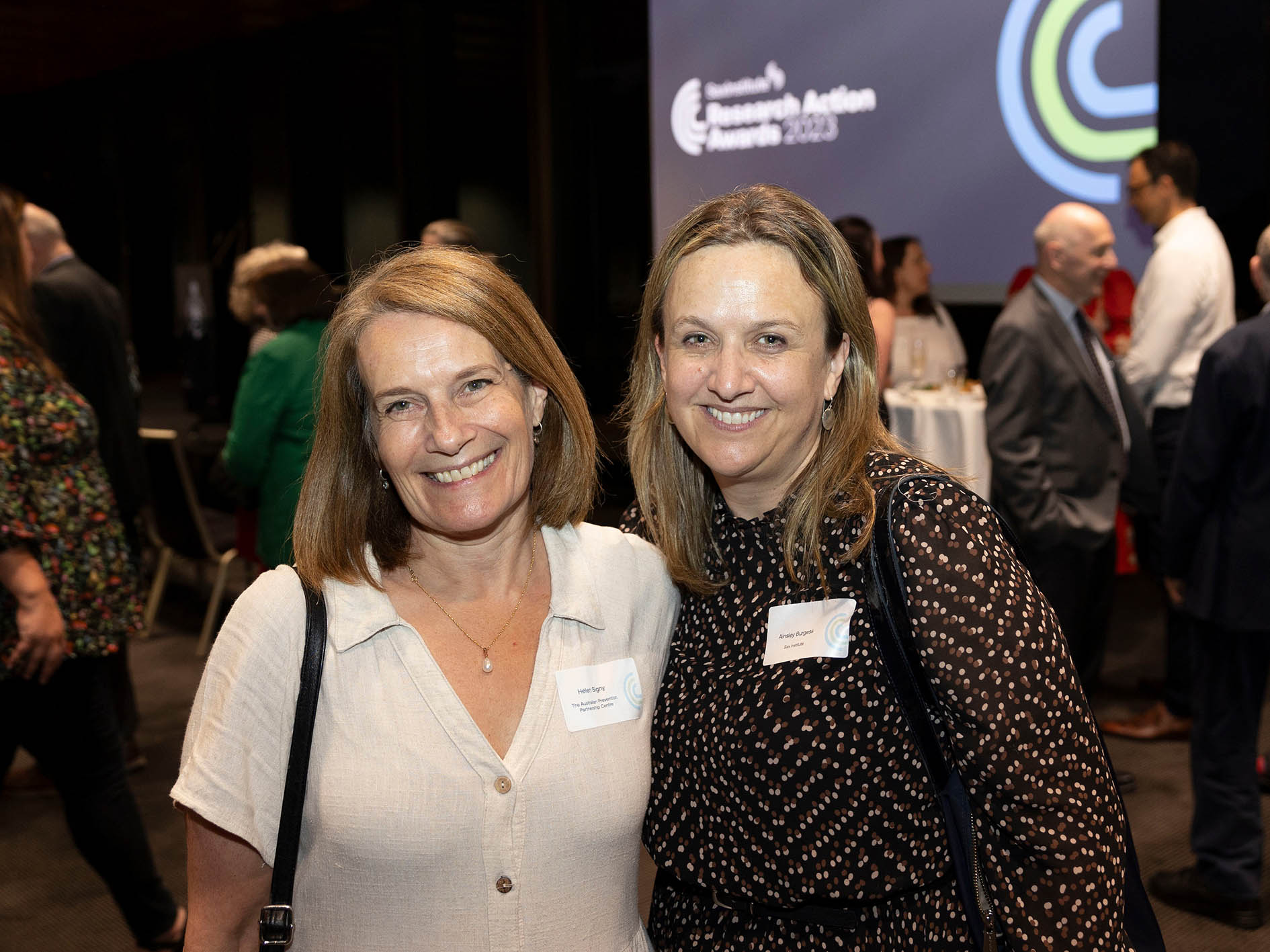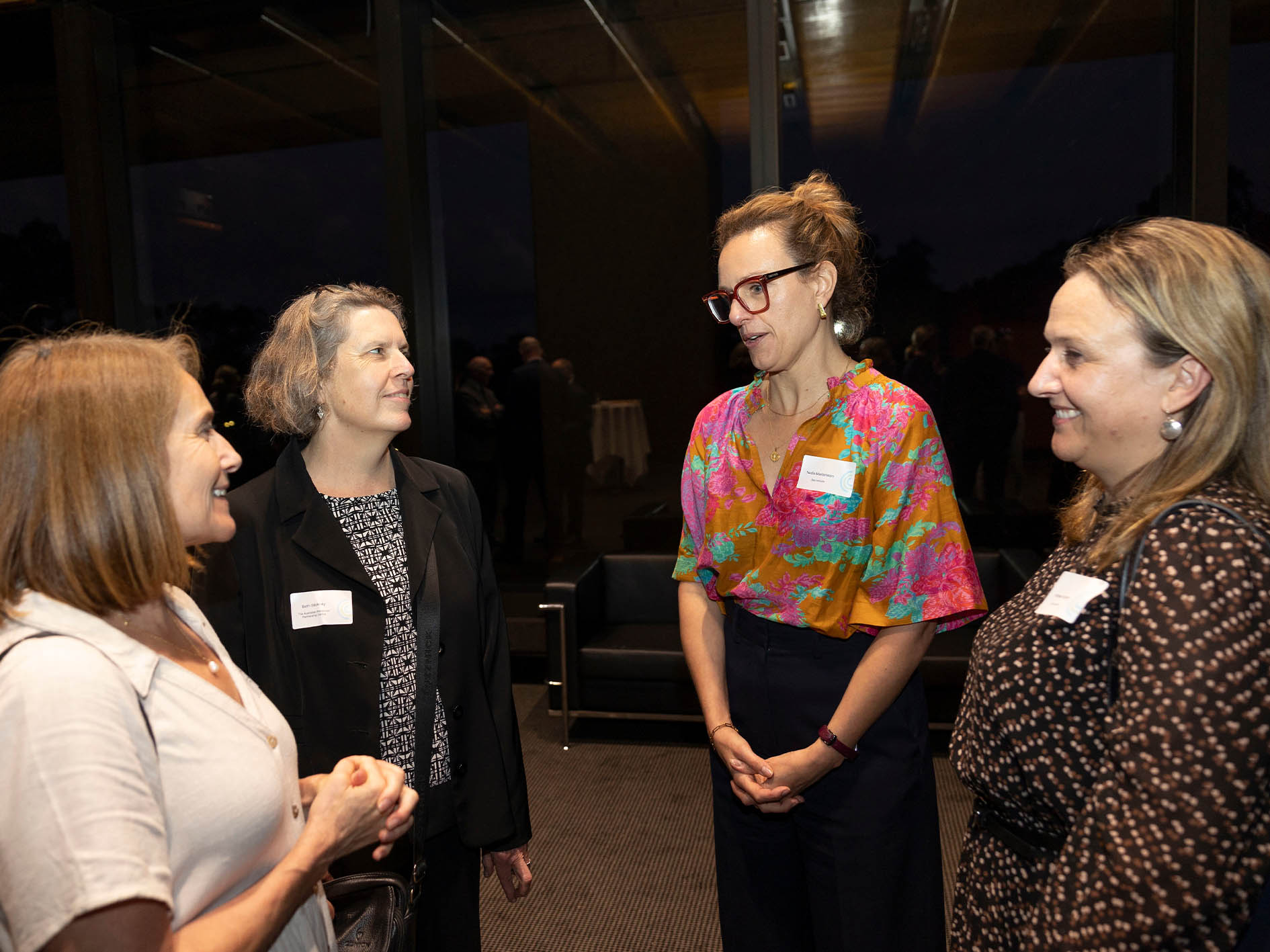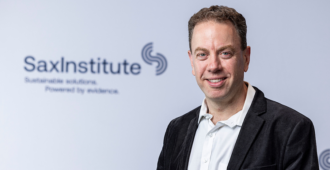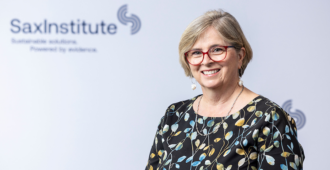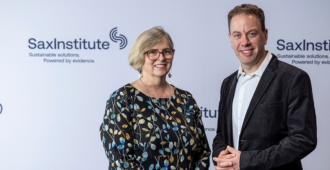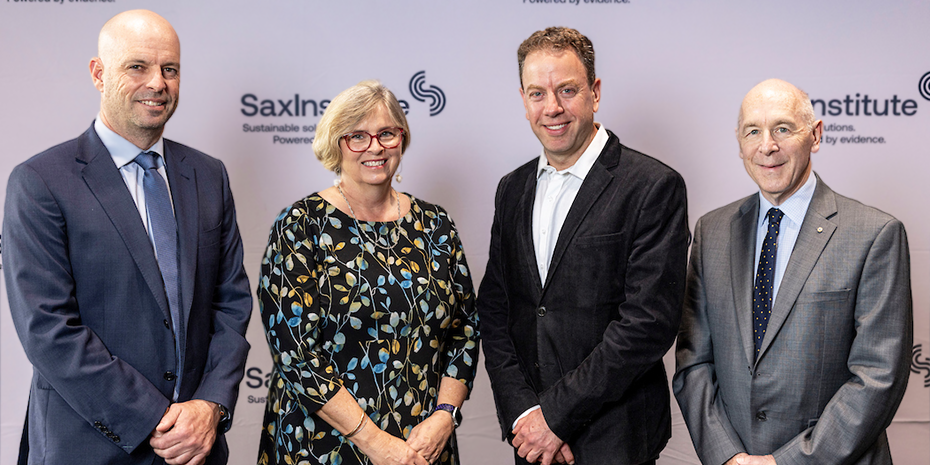
Two health researchers whose inspiring work has had a direct impact on policy and practice in quite different areas of public health were recognised at the Sax Institute’s 2023 Research Action Awards last week.
An enthusiastic audience of about 100 senior policy makers, research leaders and academics gathered at the NSW Parliament House in Sydney’s Macquarie Street to celebrate the accomplishments of the two winning researchers:
- Professor Bronwyn Hemsley, University of Technology Sydney, for her work on providing safe and enjoyable meals for people with swallowing disability
- Professor Gary Sacks, Deakin University, for his work on the Food-EPI Australia initiative to advance obesity prevention policy
You can read more about their outstanding work here.
Established in 2015, the annual Research Action Awards recognise researchers whose work has made a significant impact on health policy, programs or service delivery.
Delivering the opening address at the awards ceremony, Dr Jean-Frédéric Levesque, Deputy Secretary, Clinical Innovation and Research as well as Chief Executive, Agency for Clinical Innovation at NSW Health made the point that “the pursuit of knowledge together with innovation is a beacon that guides us towards a healthier and more equitable future for all.”
He noted the acceleration in the production of knowledge over the past few years and how important it was to acknowledge the contribution that researchers make to bridging the gap between fundamental research, clinical research and implementation.
The year’s ceremony also included a lively panel discussion chaired by the Sax Institute’s CEO Dr Martin McNamara around the theme of mobilising evidence in an age of misinformation and disinformation. The panel comprised Associate Professor Becky Freeman of the School of Public Health Prevention Research Collaboration, University of Sydney; Professor Julie Leask of the School of Public Health and Sydney Infectious Diseases Institute at the University of Sydney; and Genevieve Ileris, Head of Partnerships and Communication at the Sax Institute.
During the discussion, all three panel members stressed the need for using plain and simple English as well as enlisting the help of trusted community leaders in managing communications around public health issues to combat mis- and disinformation.
The impact of artificial intelligence in this area and its risks in the information landscape was the subject of a fascinating discussion among the panellists. Associate Professor Freeman noted a recent study in which researchers used AI to make 107 blog posts in a matter of minutes. But she said that on the whole she was optimistic, and that tools such as Chat GPT are likely to get more and more accurate, the more information it has at its disposal.
“We don’t need to run scared from AI, I think we need to learn how to use it better. It’s not going to ruin the world, it’s just another tool we need to learn how to use.”
In closing remarks, Dr McNamara warmly congratulated this year’s winners for their awards and the work that they were recognised for.
“They are great examples of genuine research impact and work that will actually change health outcomes. Recognising and promoting this kind of work is a big part of our mission at the Sax Institute. If we can bring more profile to that work and if you can get renewed enthusiasm for what you’ve started, that will be a fantastic outcome.”
View photo gallery
Professor Bronwyn Hemsley and Professor Gary Sacks Professor Ian Olver AM, Professor Gary Sacks, Dr Martin McNamara Professor Ian Olver AM, Professor Bronwyn Hemsley, Dr Martin McNamara Professor Bronwyn Hemsley, University of Technology Sydney Professor Gary Sacks, Deakin University Professor Don Nutbeam, Editor-in-Chief, Public Health Research & Practice Professor Ian Olver AM, Chair, Sax Institute Professor Ian Olver AM, Chair, Sax Institute Professor Ian Olver AM, Chair, Sax Institute Professor Ian Olver AM, Professor Bronwyn Hemsley Professor Ian Olver AM, Professor Gary Sacks Associate Professor Becky Freeman, Dr Julie Leask, Genevieve Ileris, Dr Martin McNamara Associate Professor Becky Freeman, Dr Julie Leask, Genevieve Ileris Associate Professor Becky Freeman, Dr Julie Leask, Genevieve Ileris Associate Professor Becky Freeman, Dr Julie Leask Dr Martin McNamara, CEO, Sax Institute Professor Bronwyn Hemsley and Professor Ian Olver AM Professor Gary Sacks and Professor Ian Olver AM

